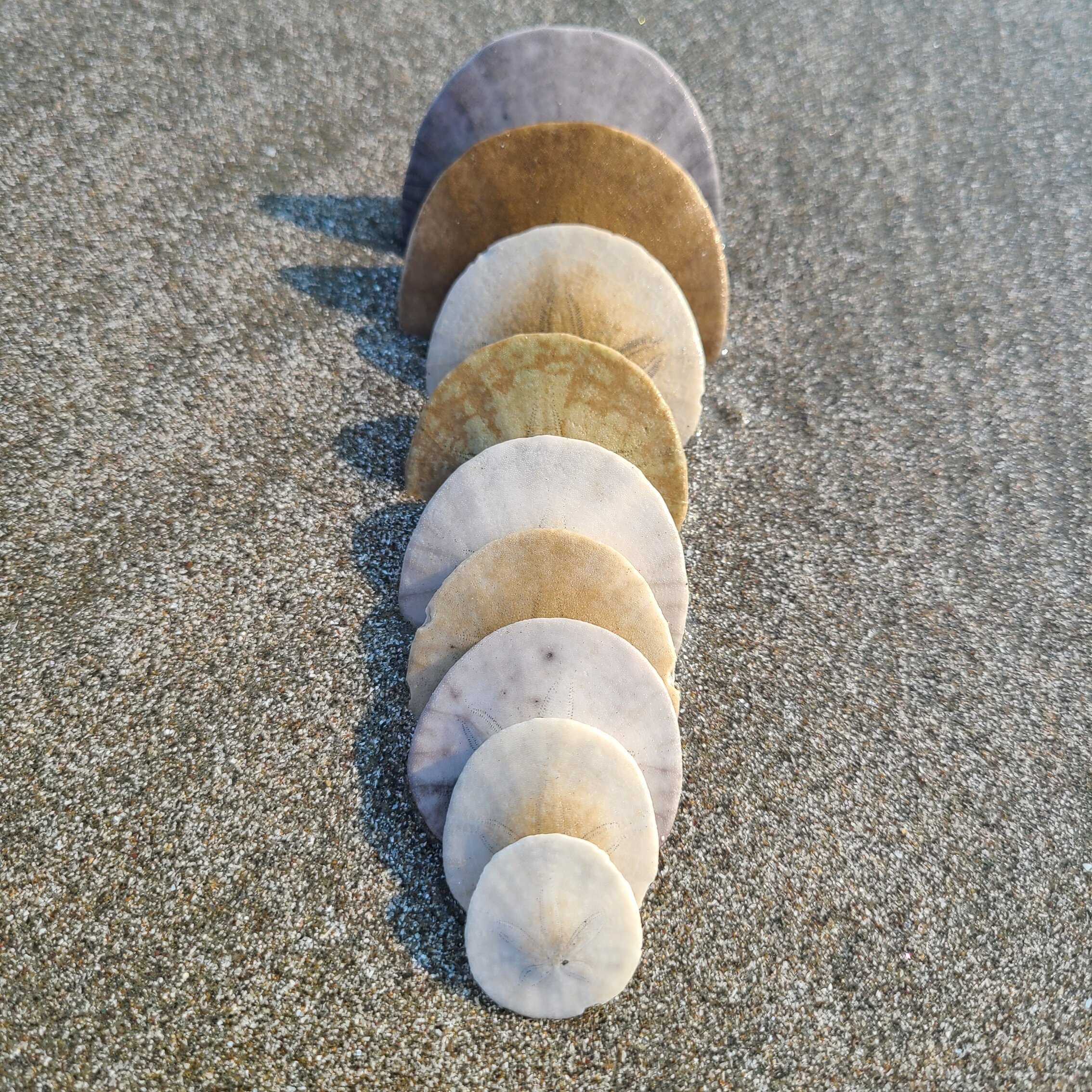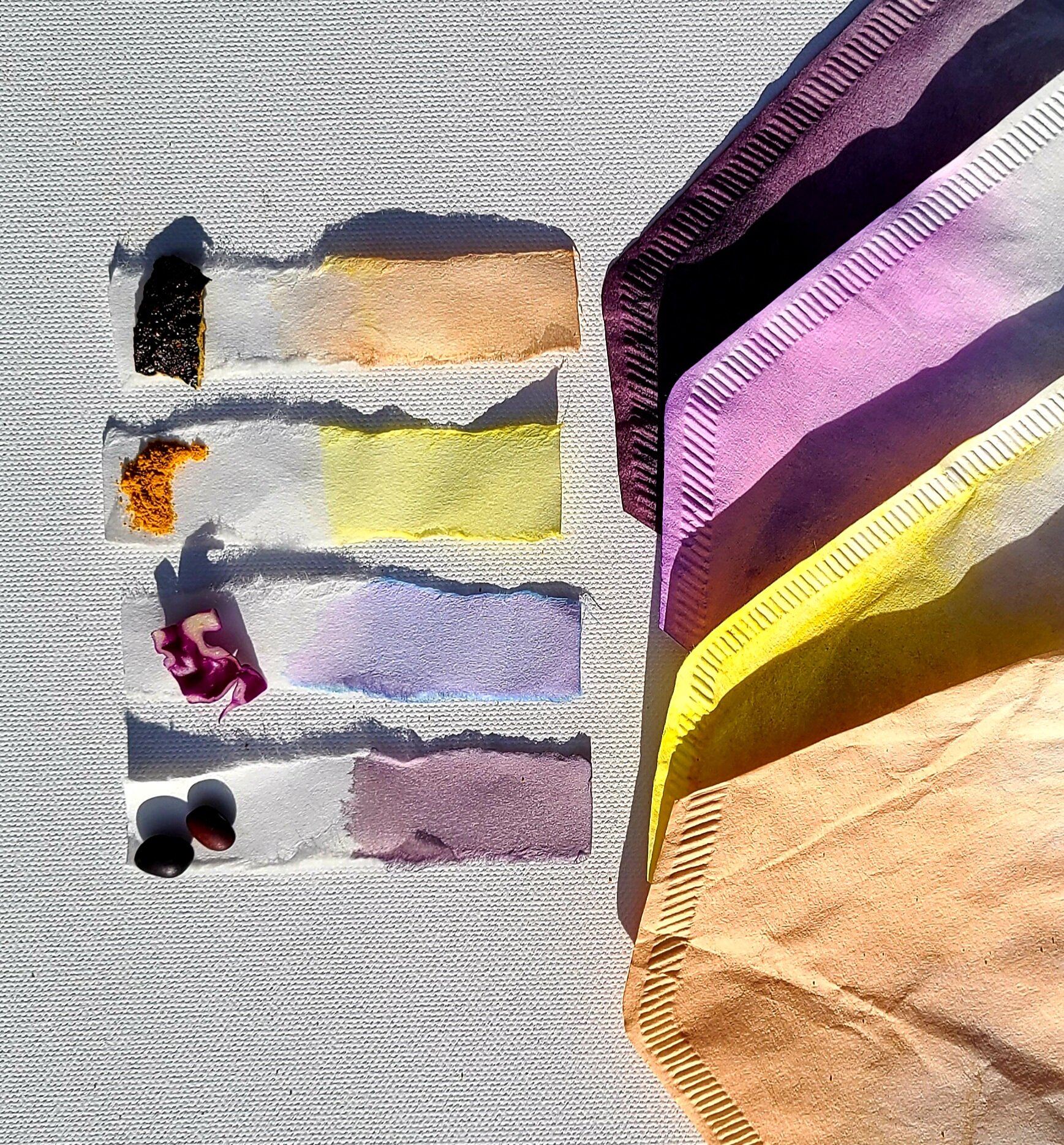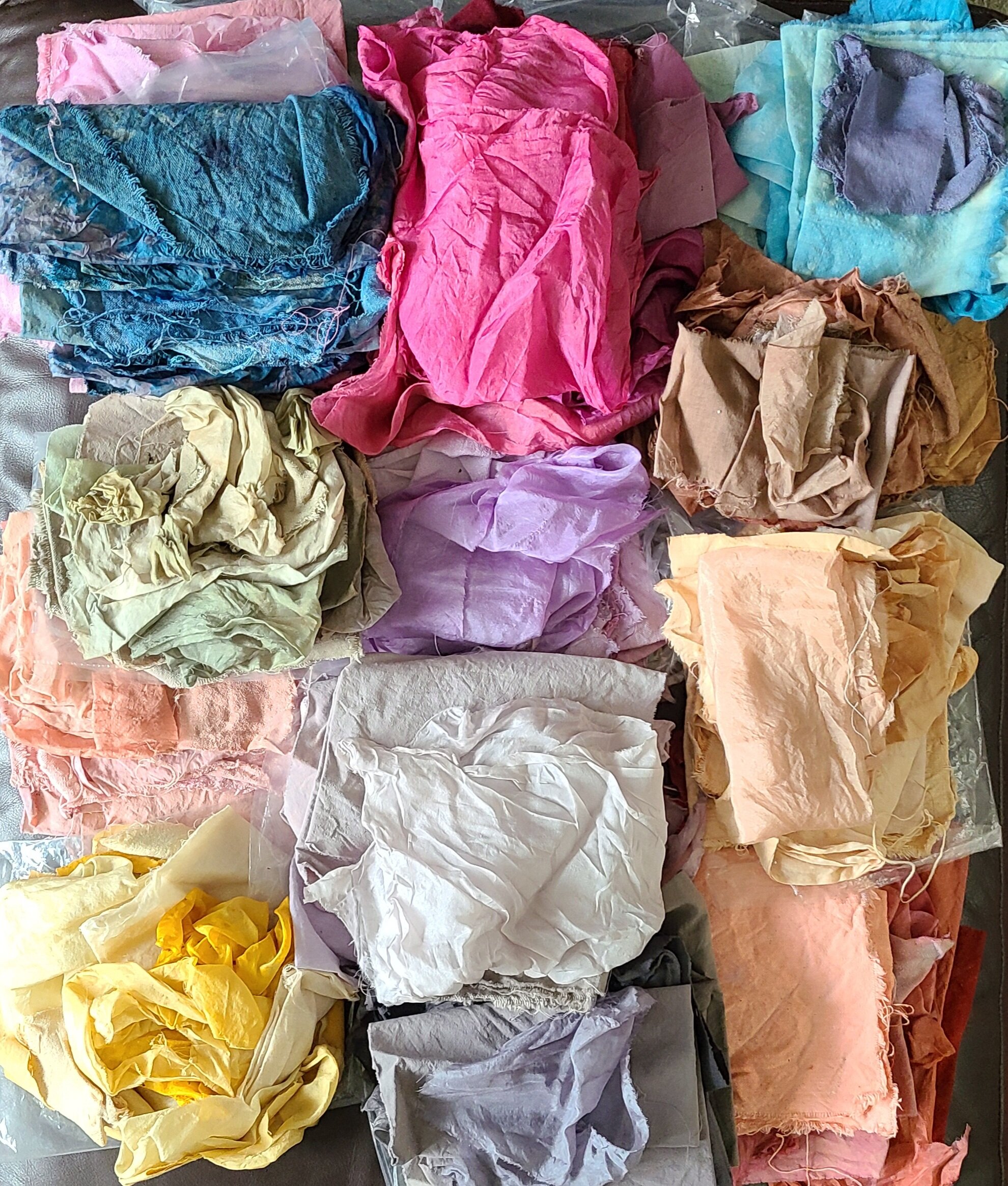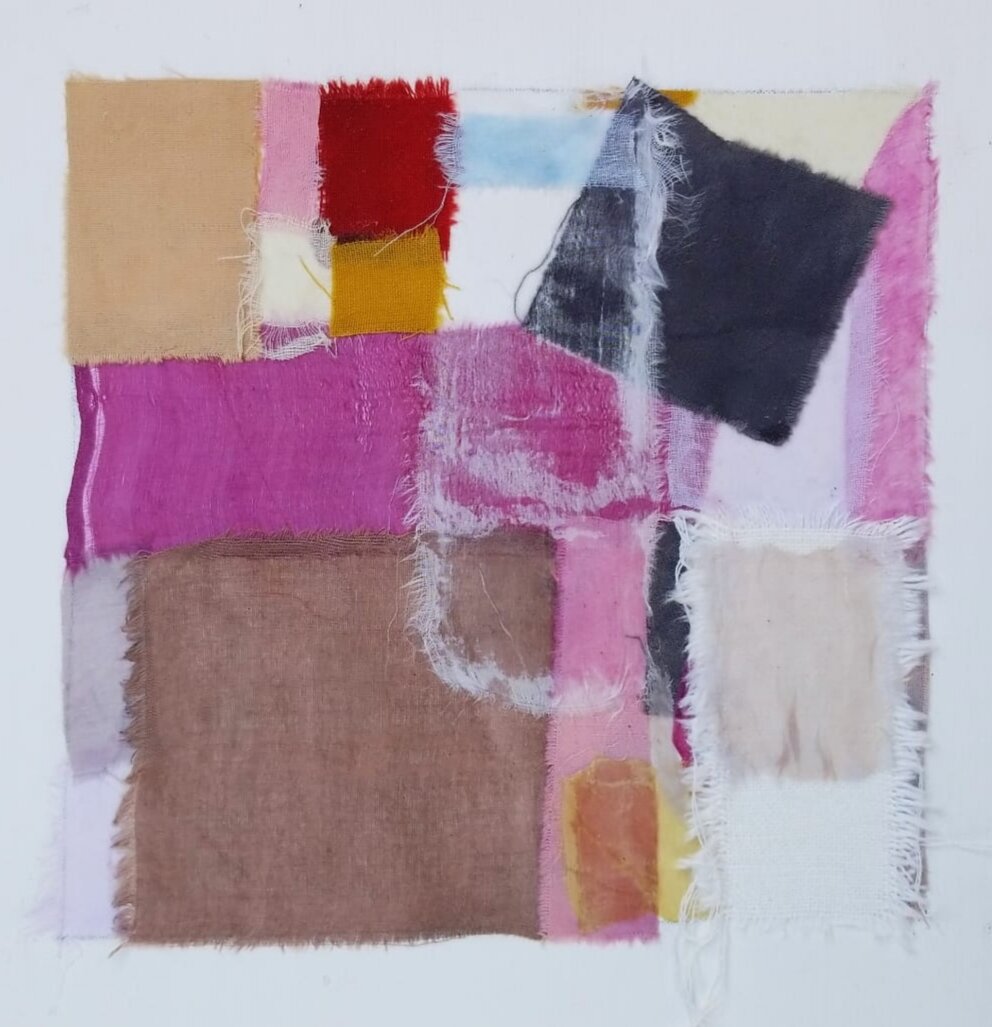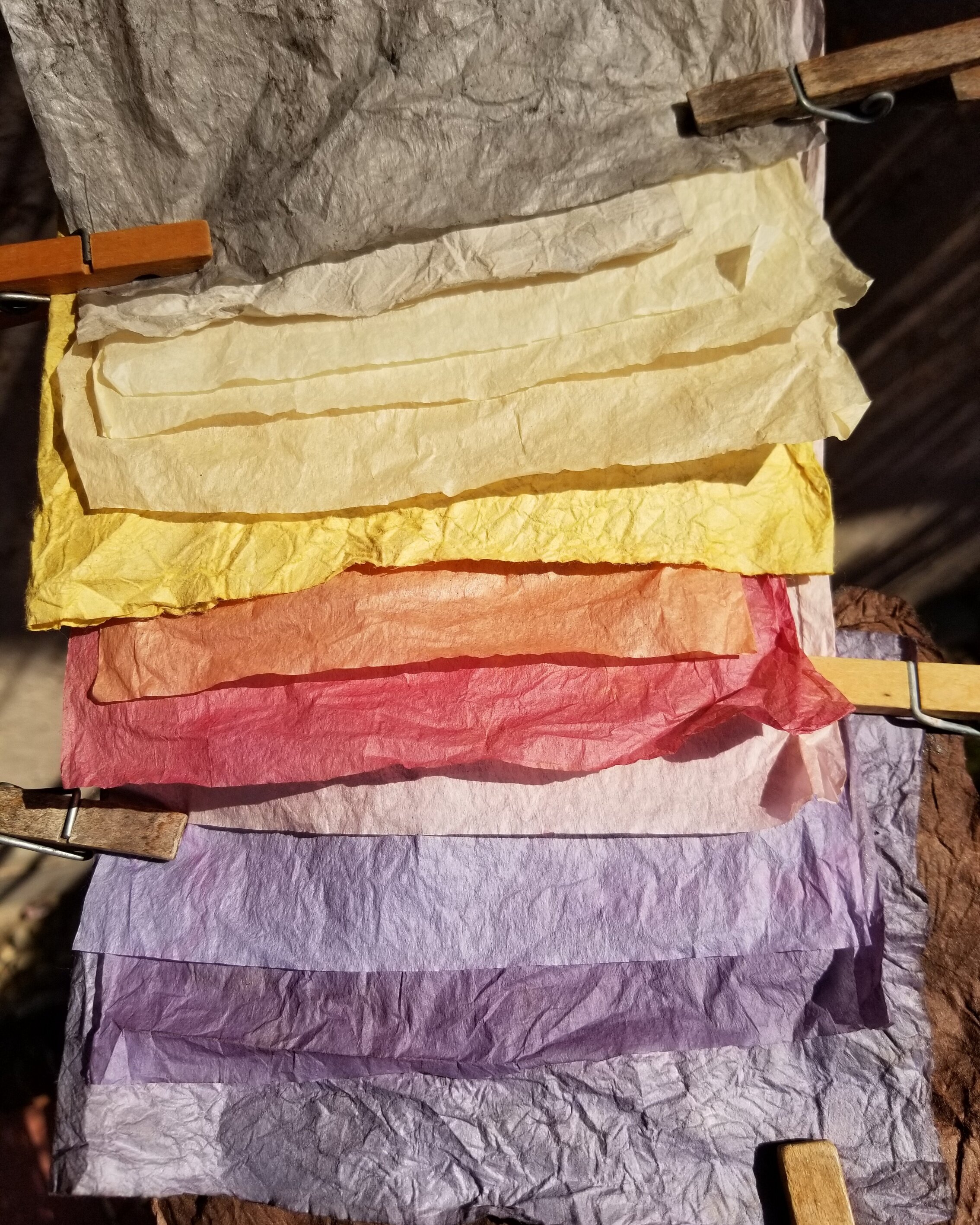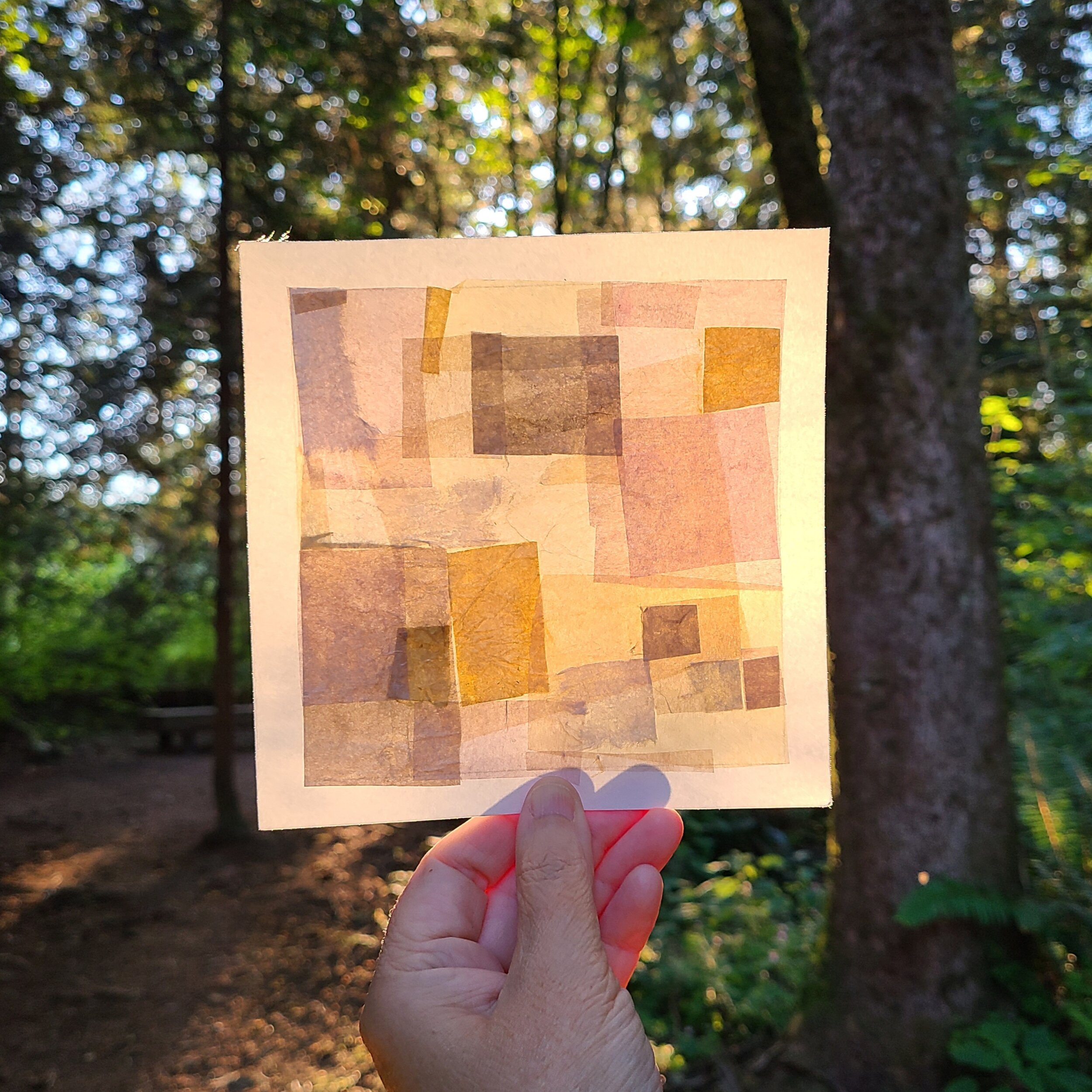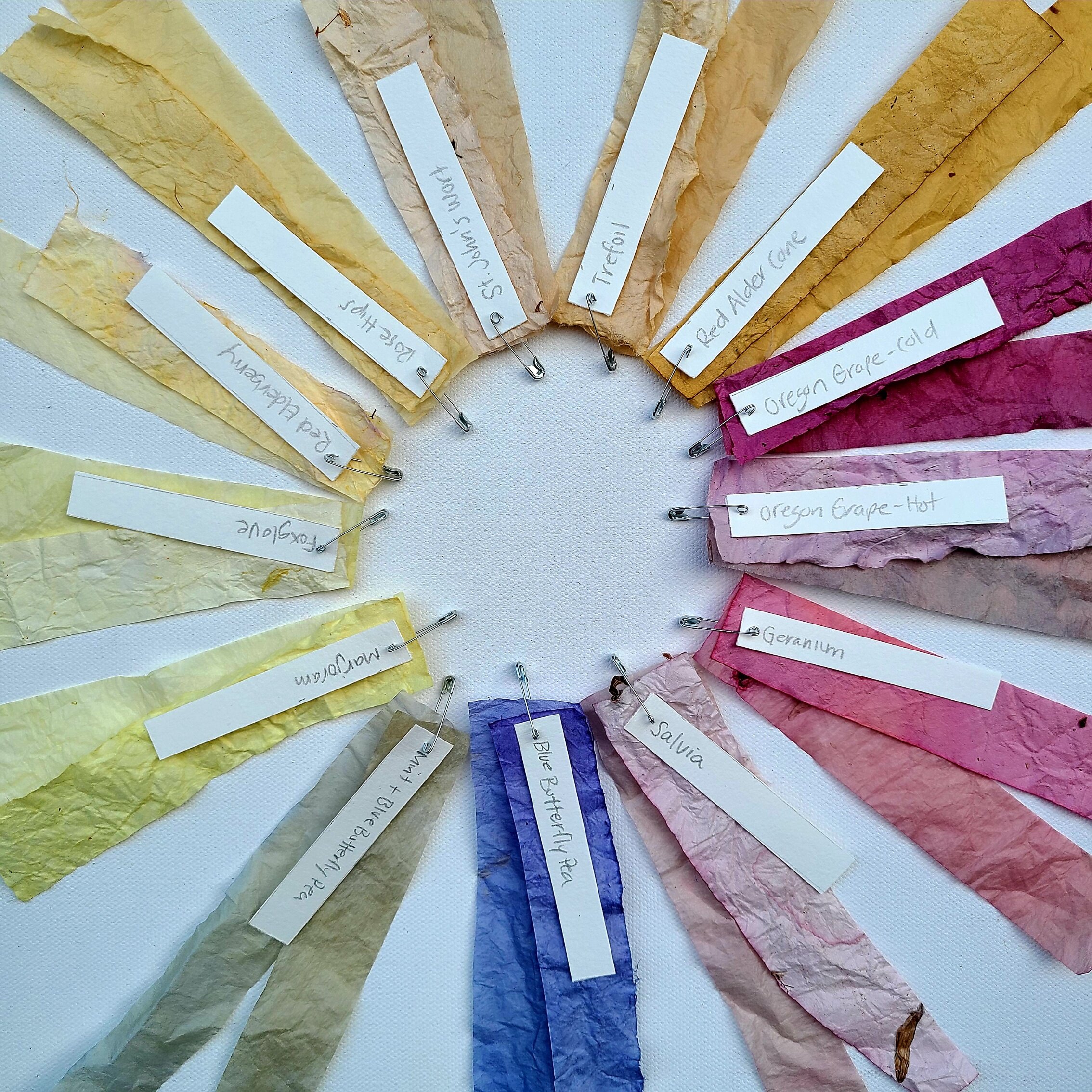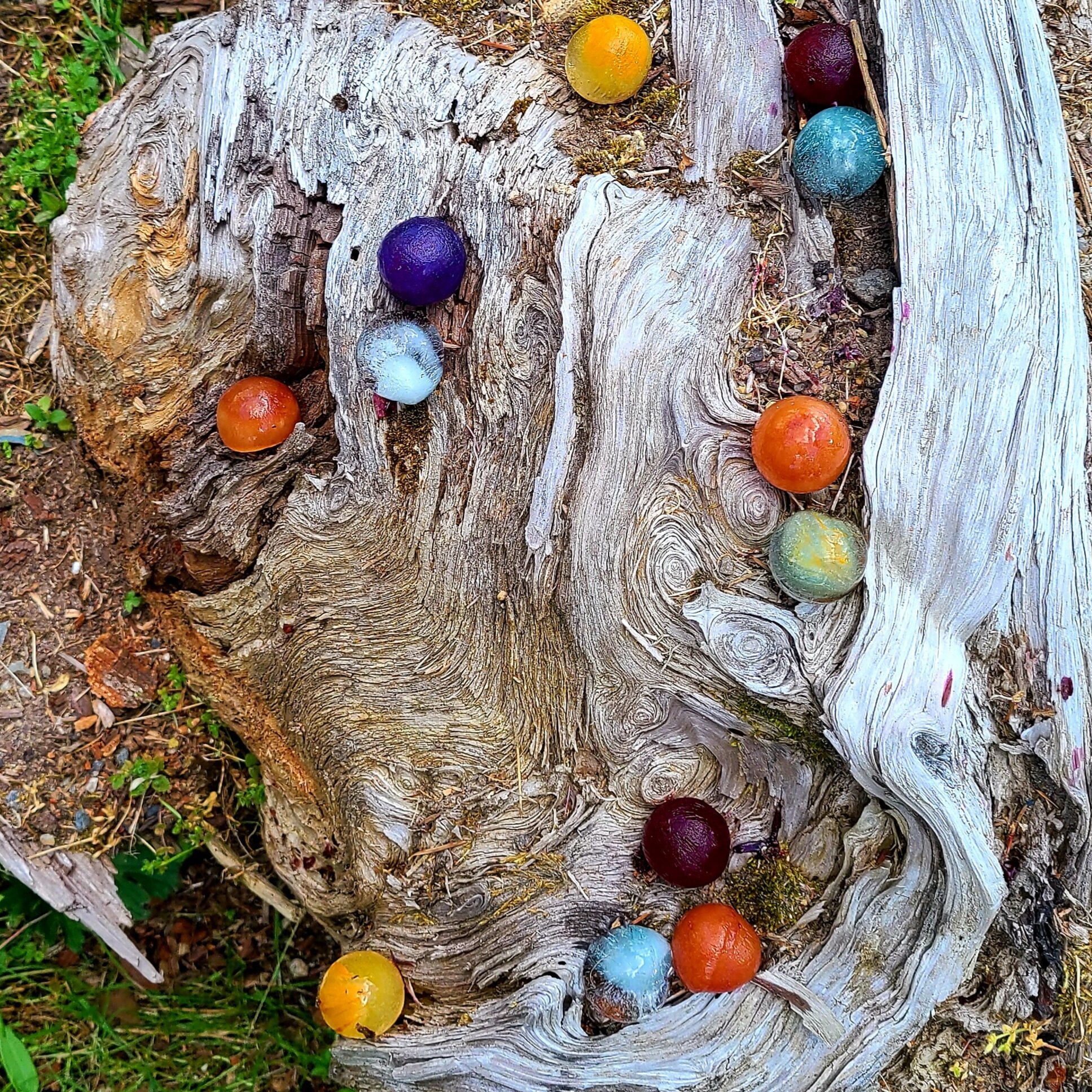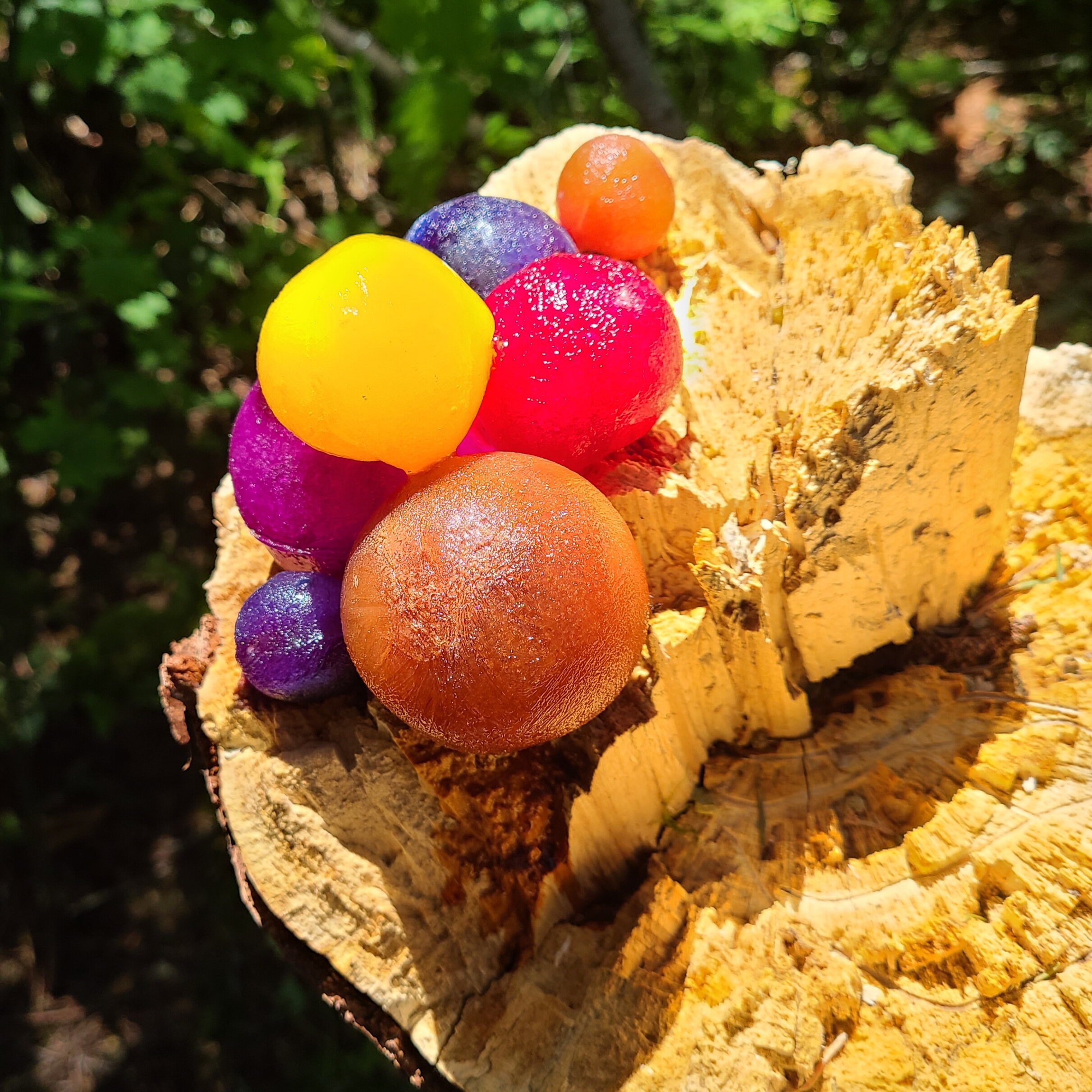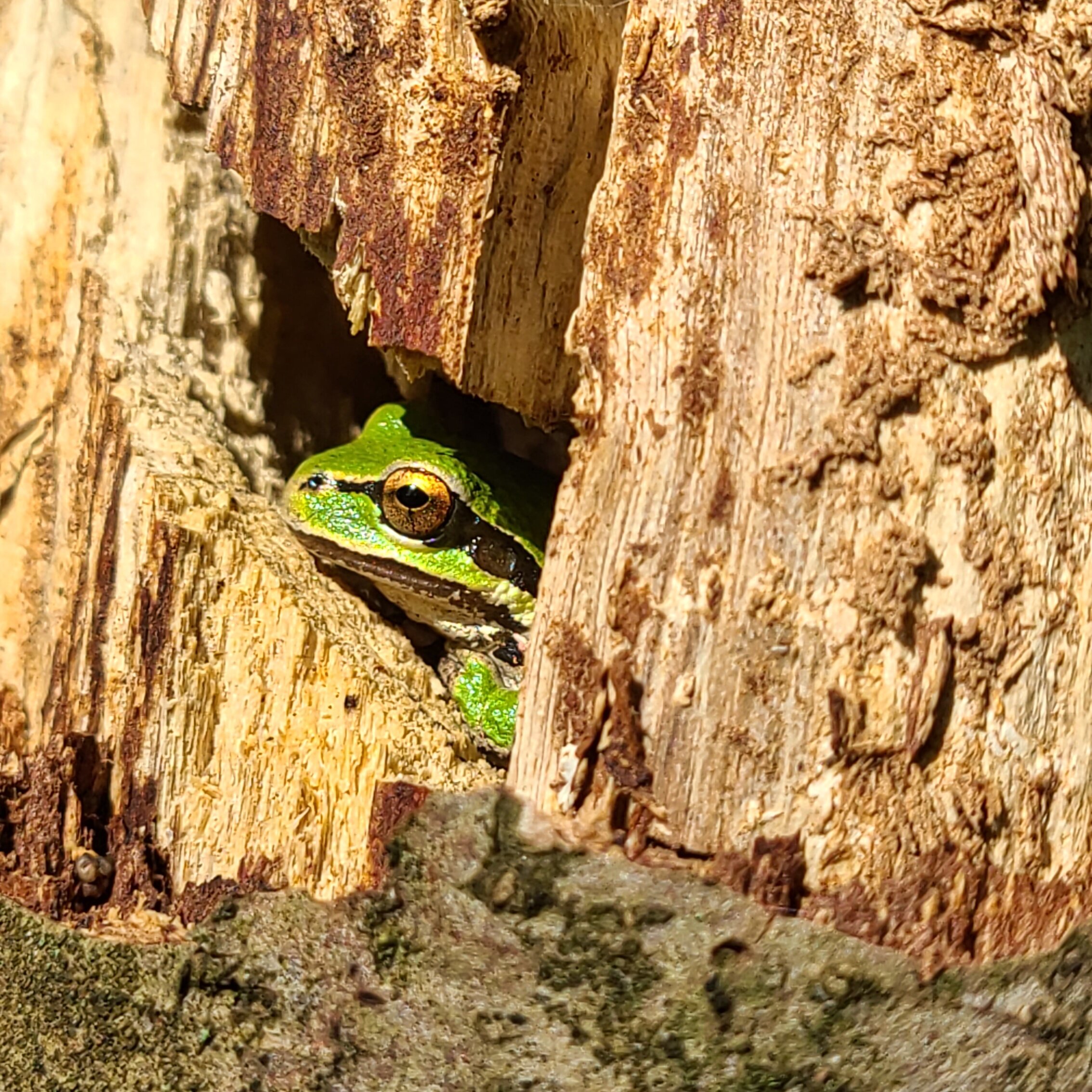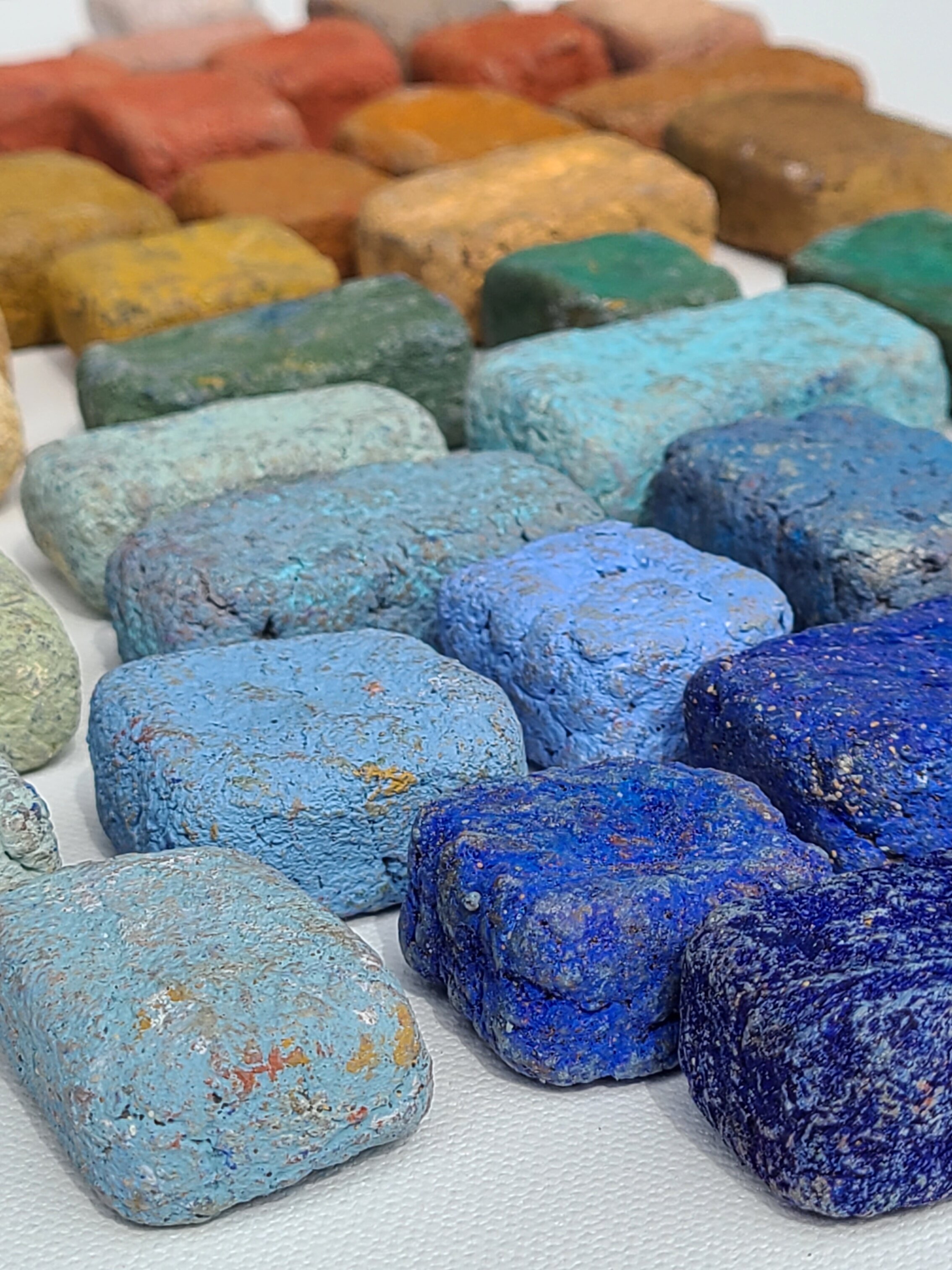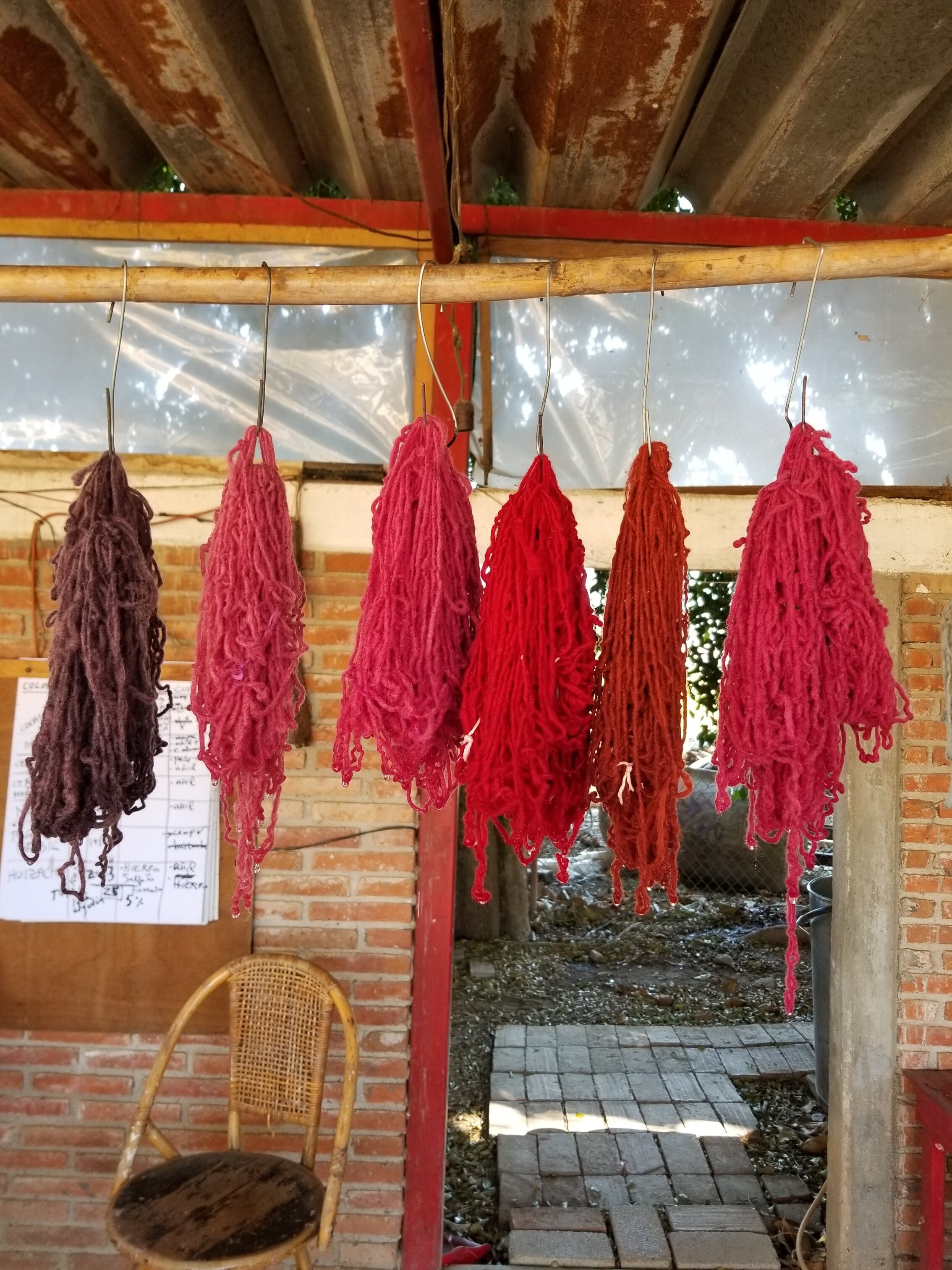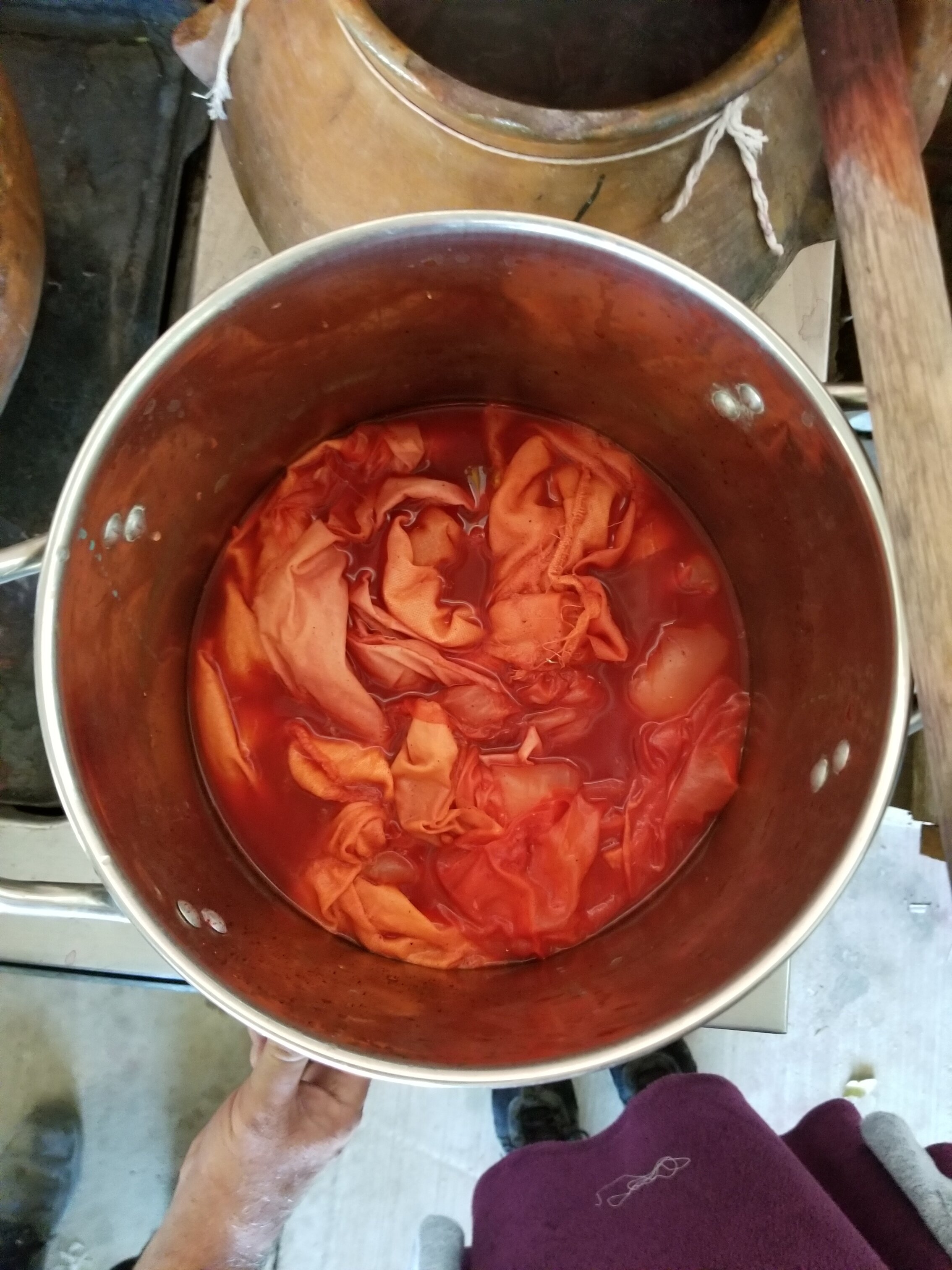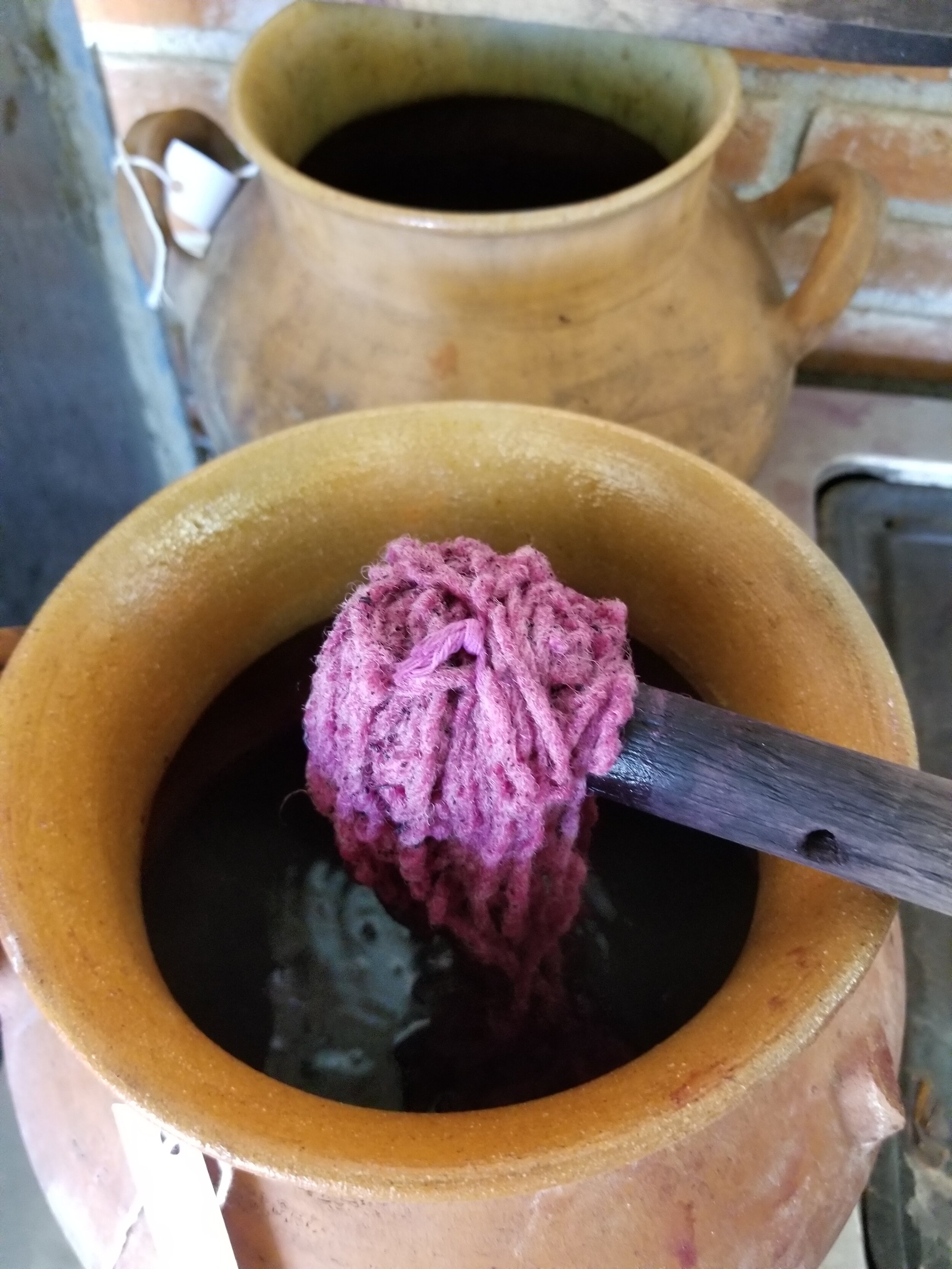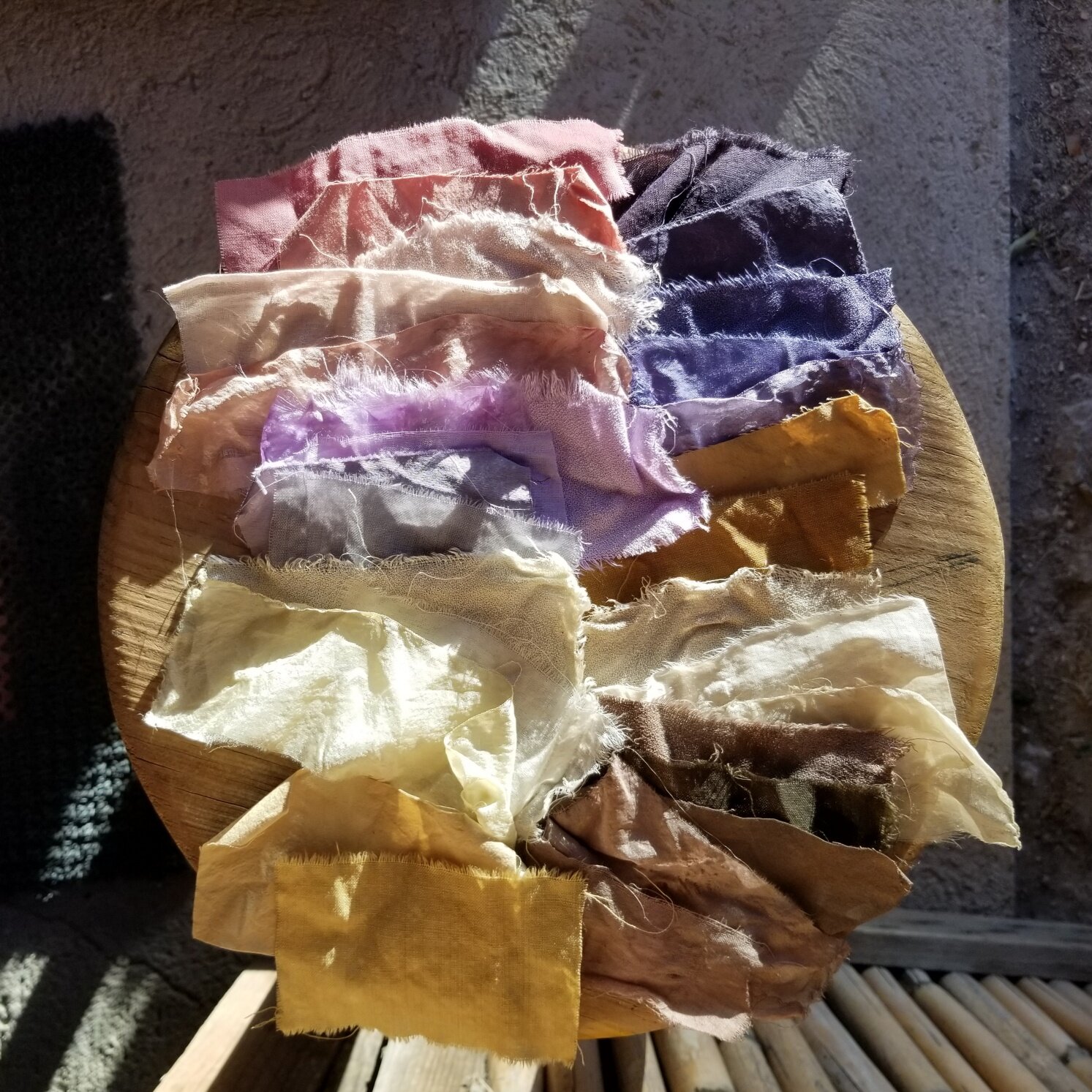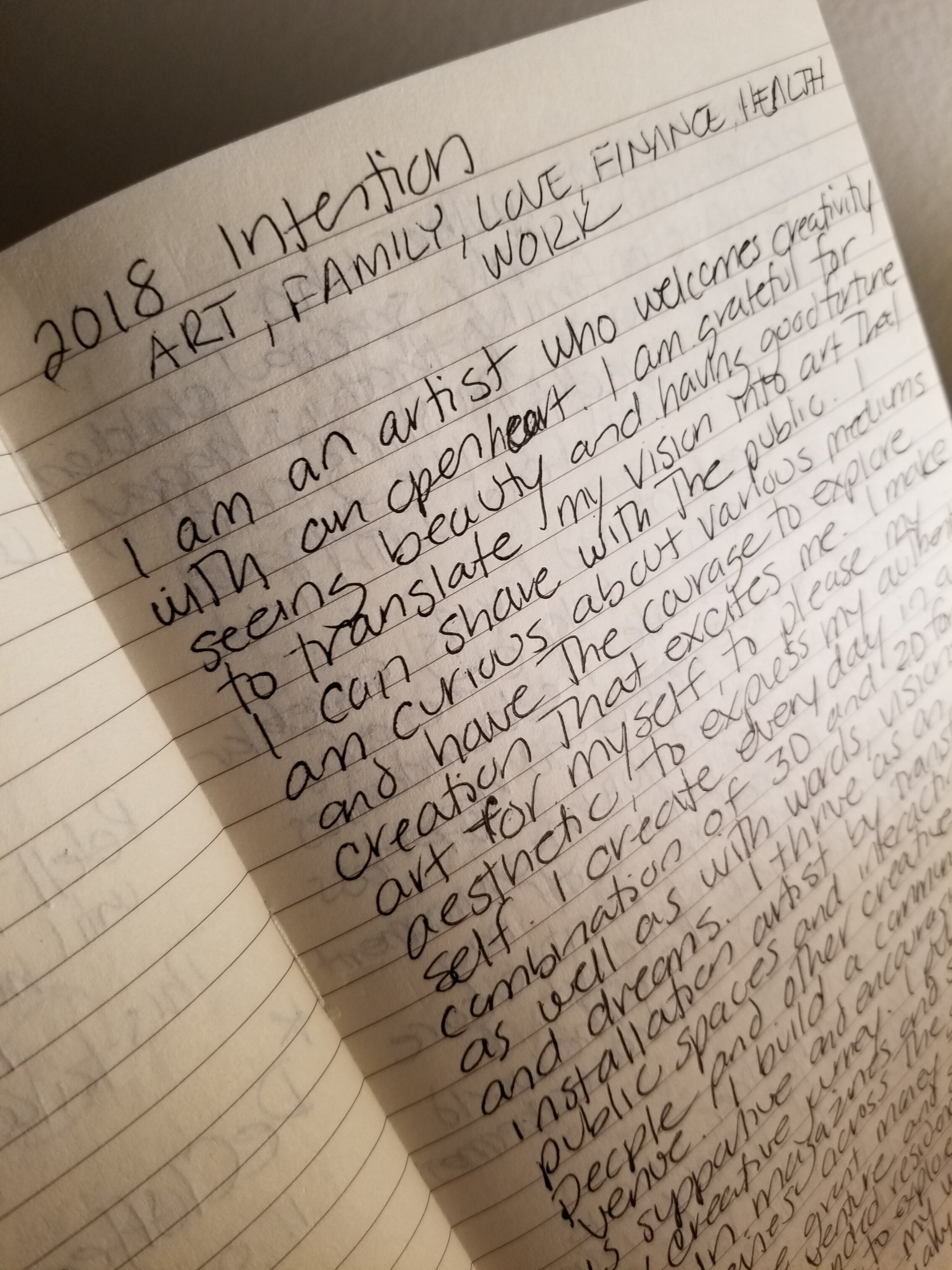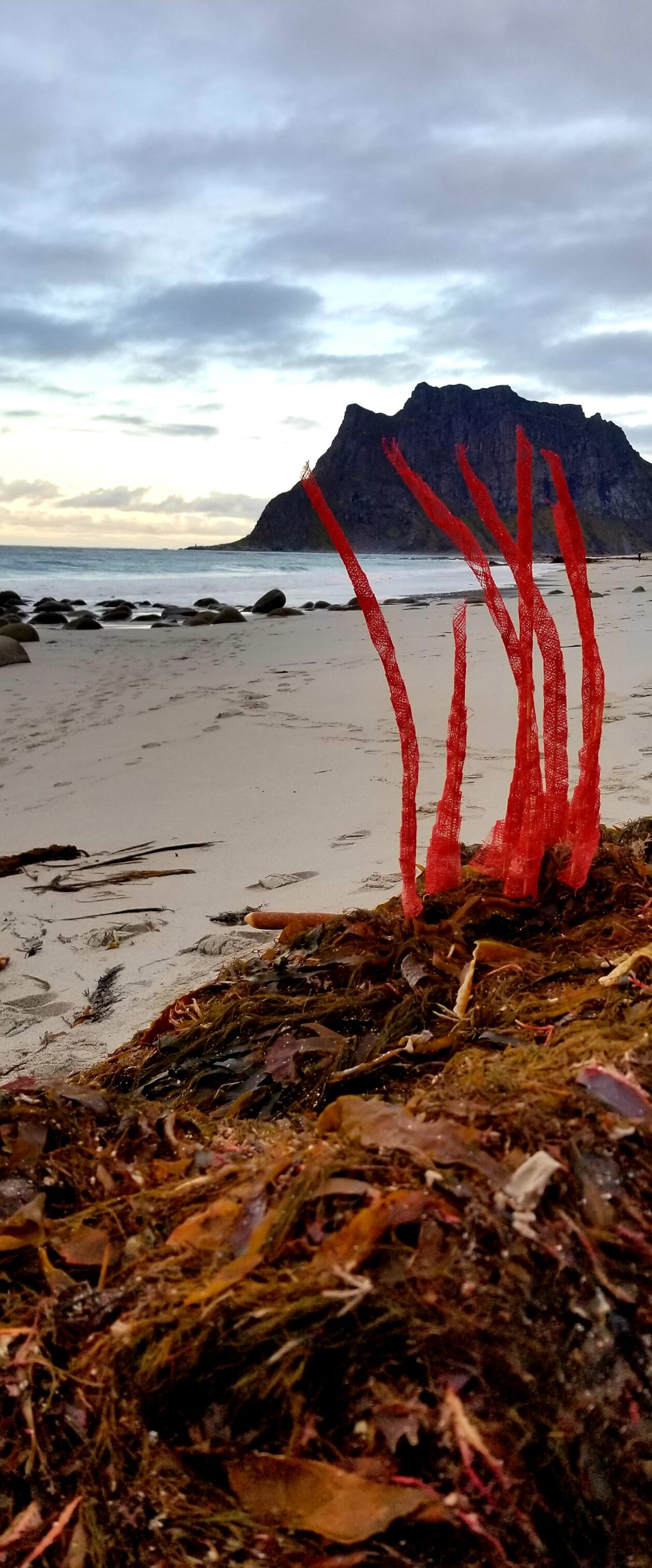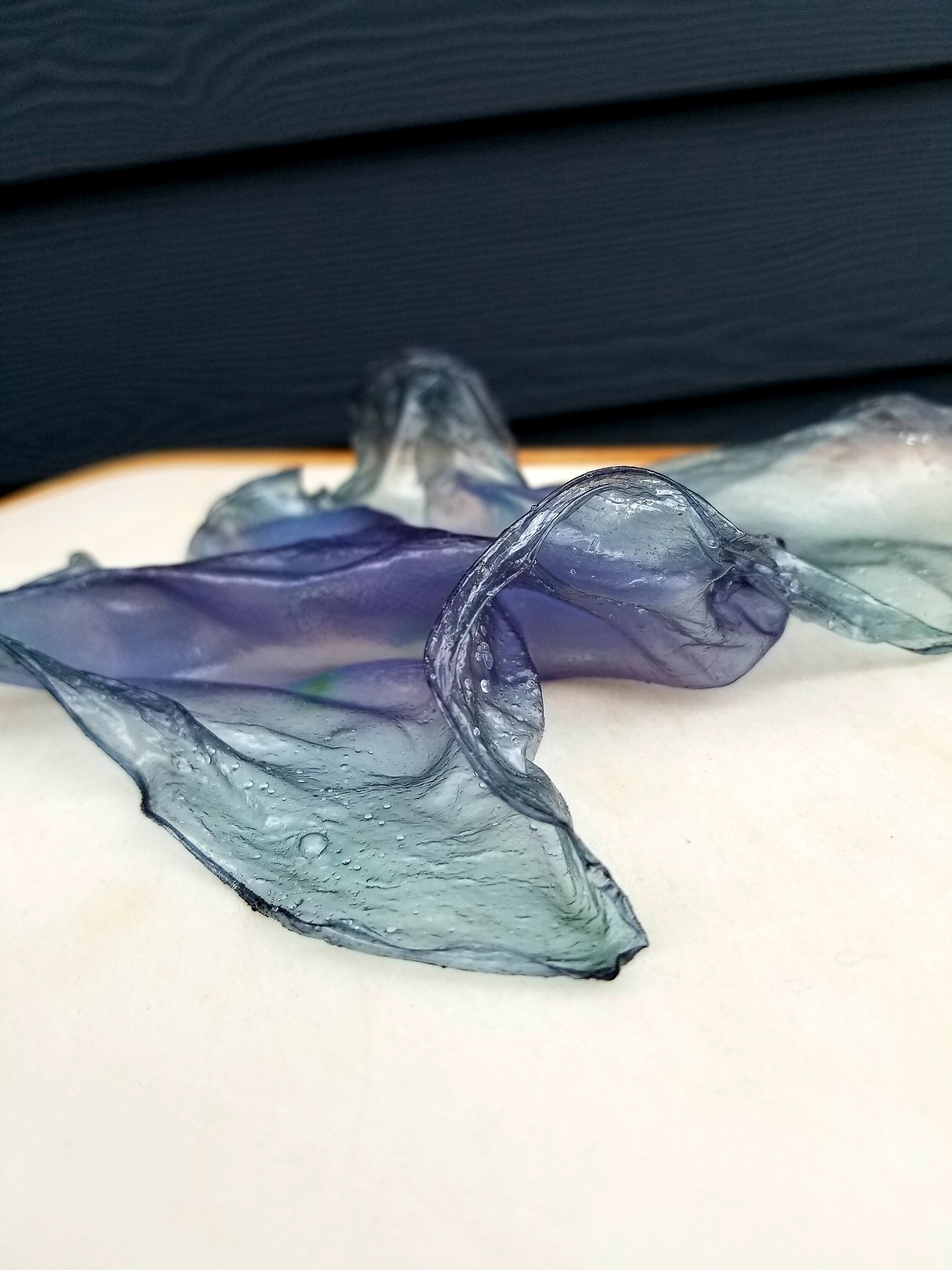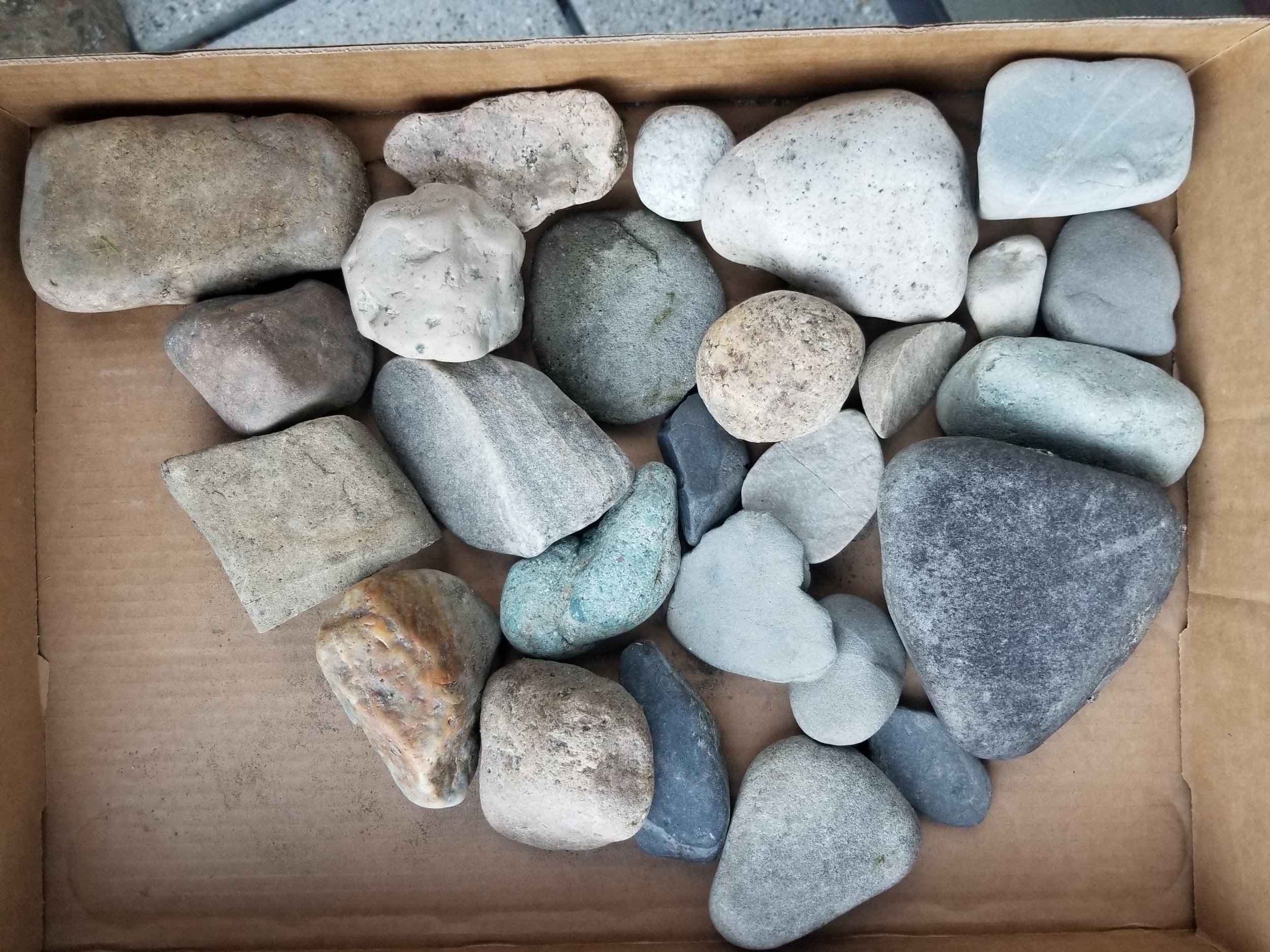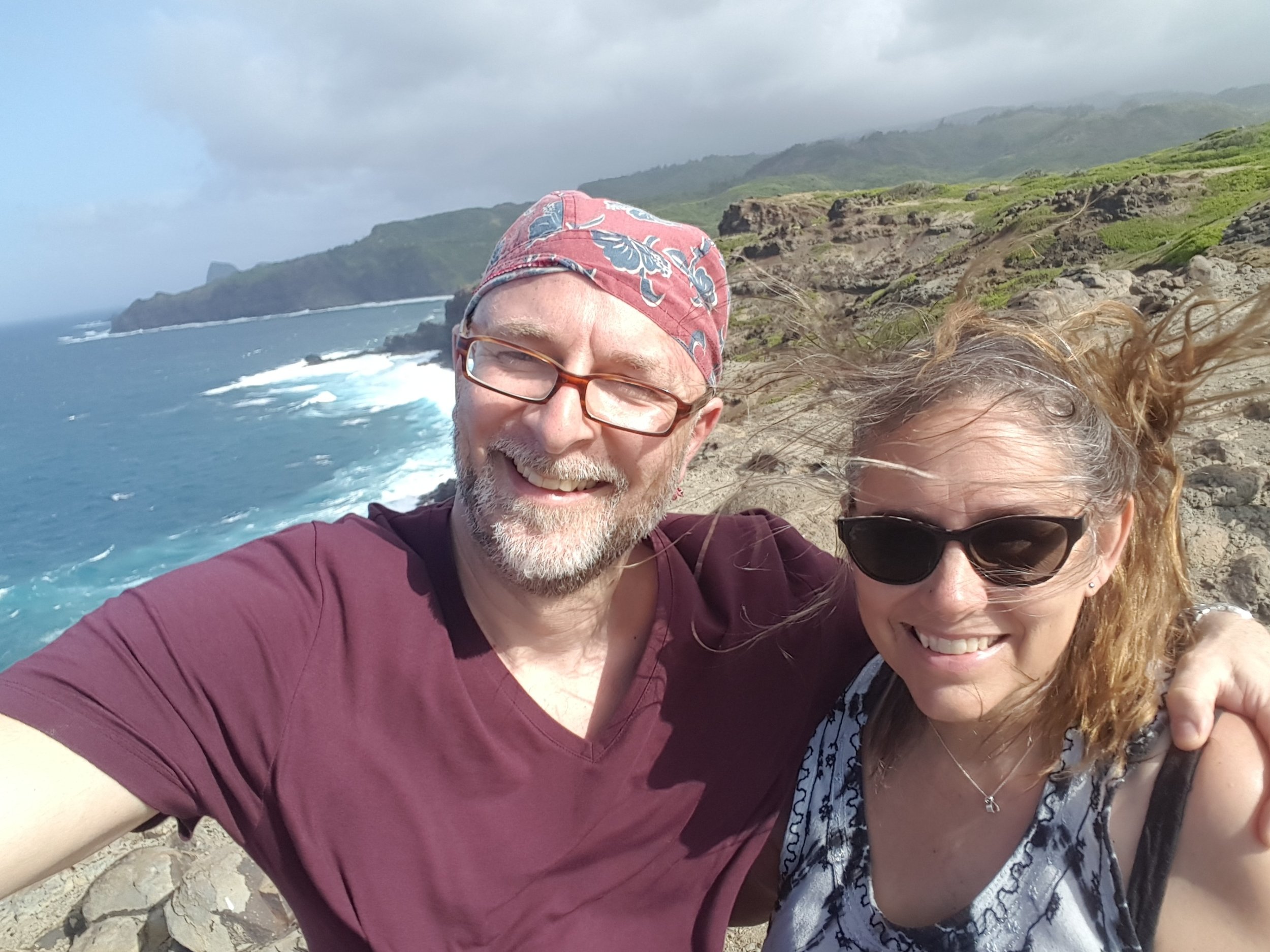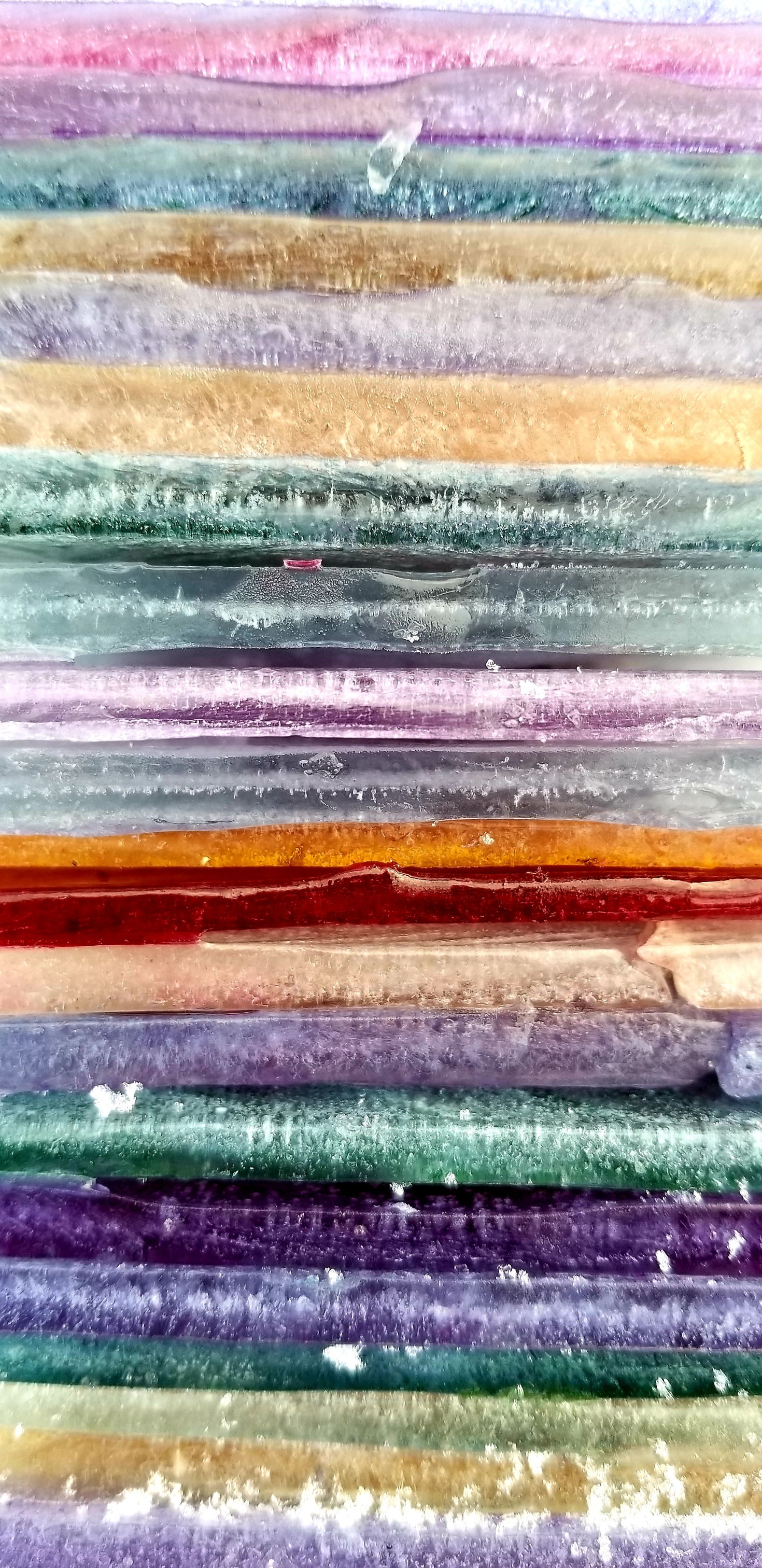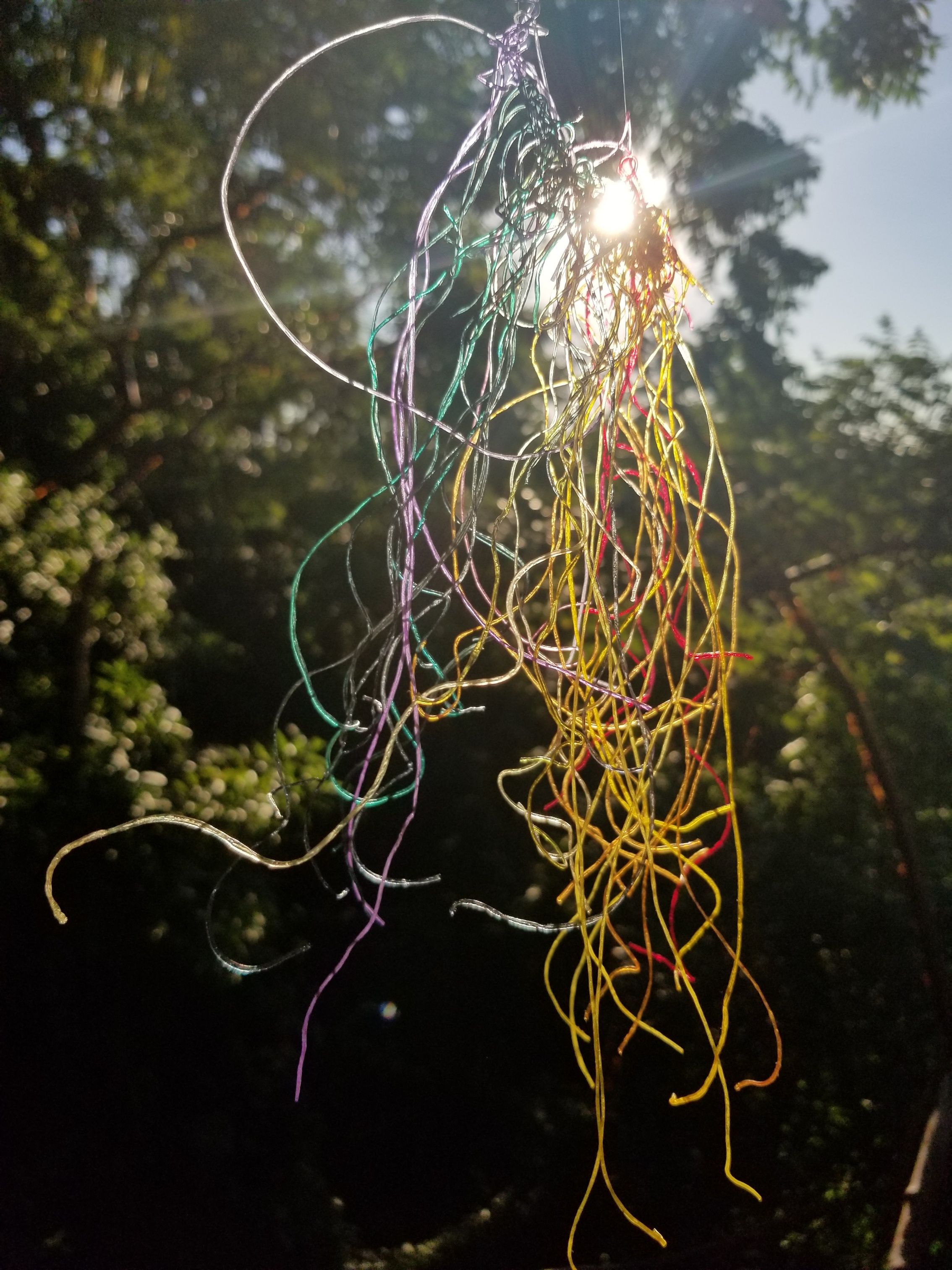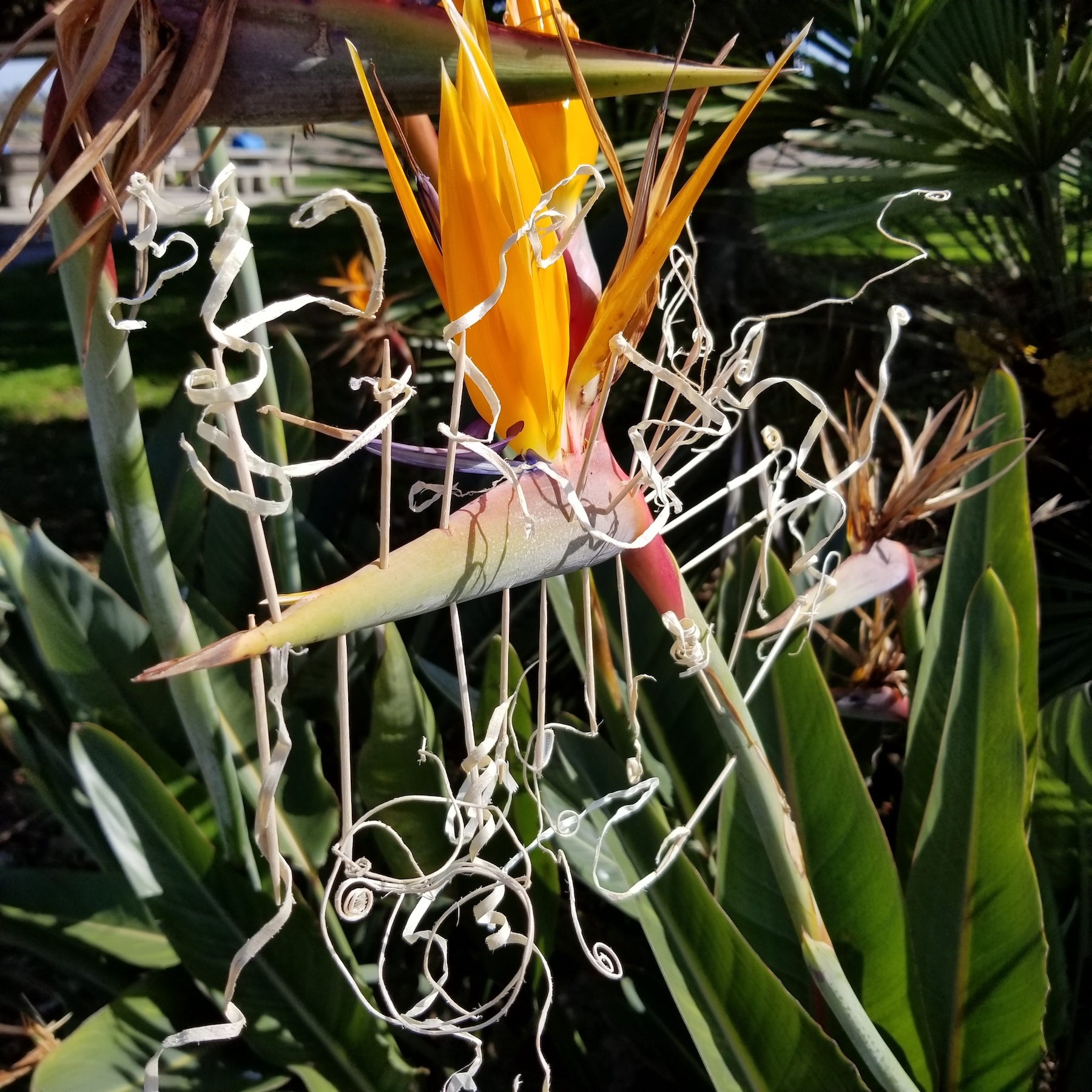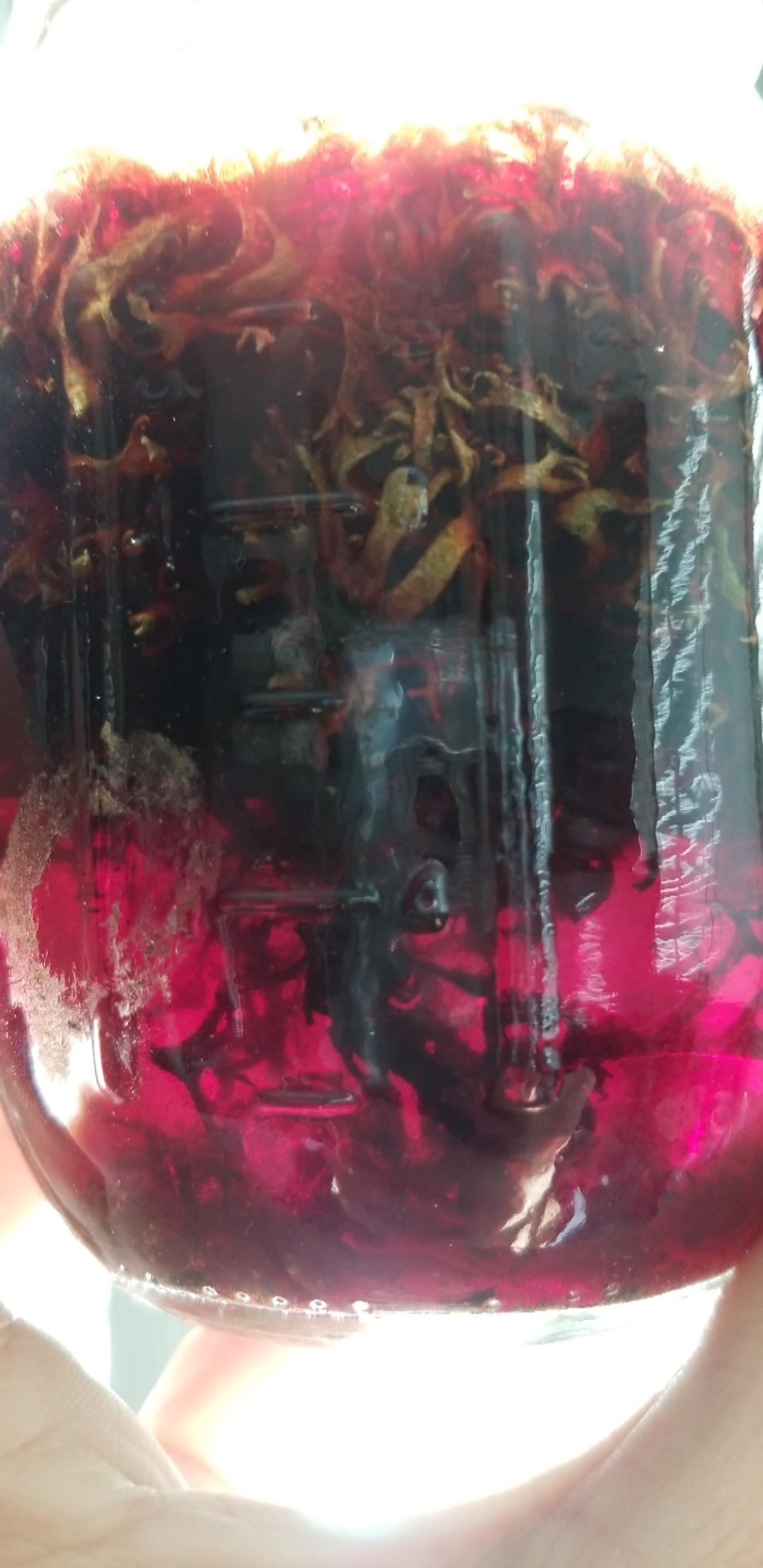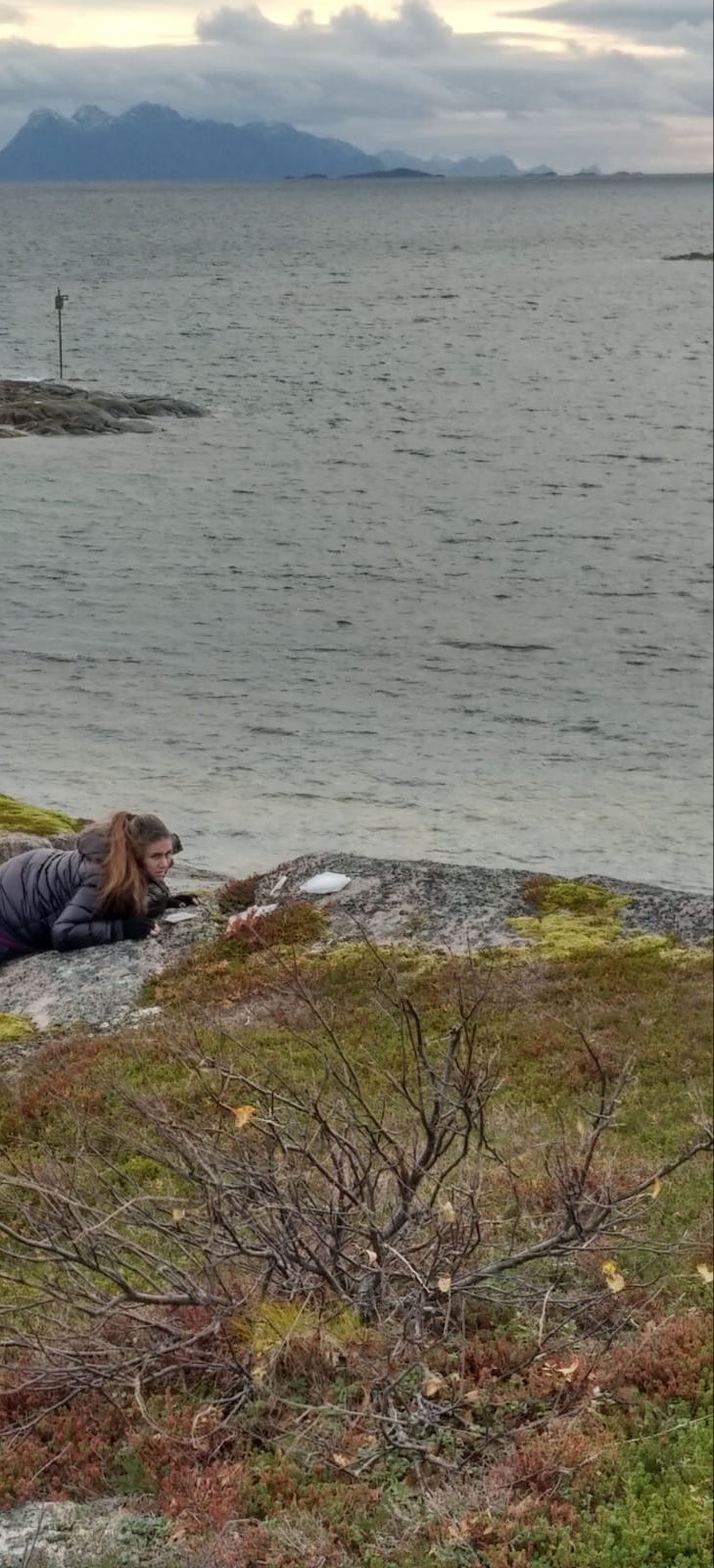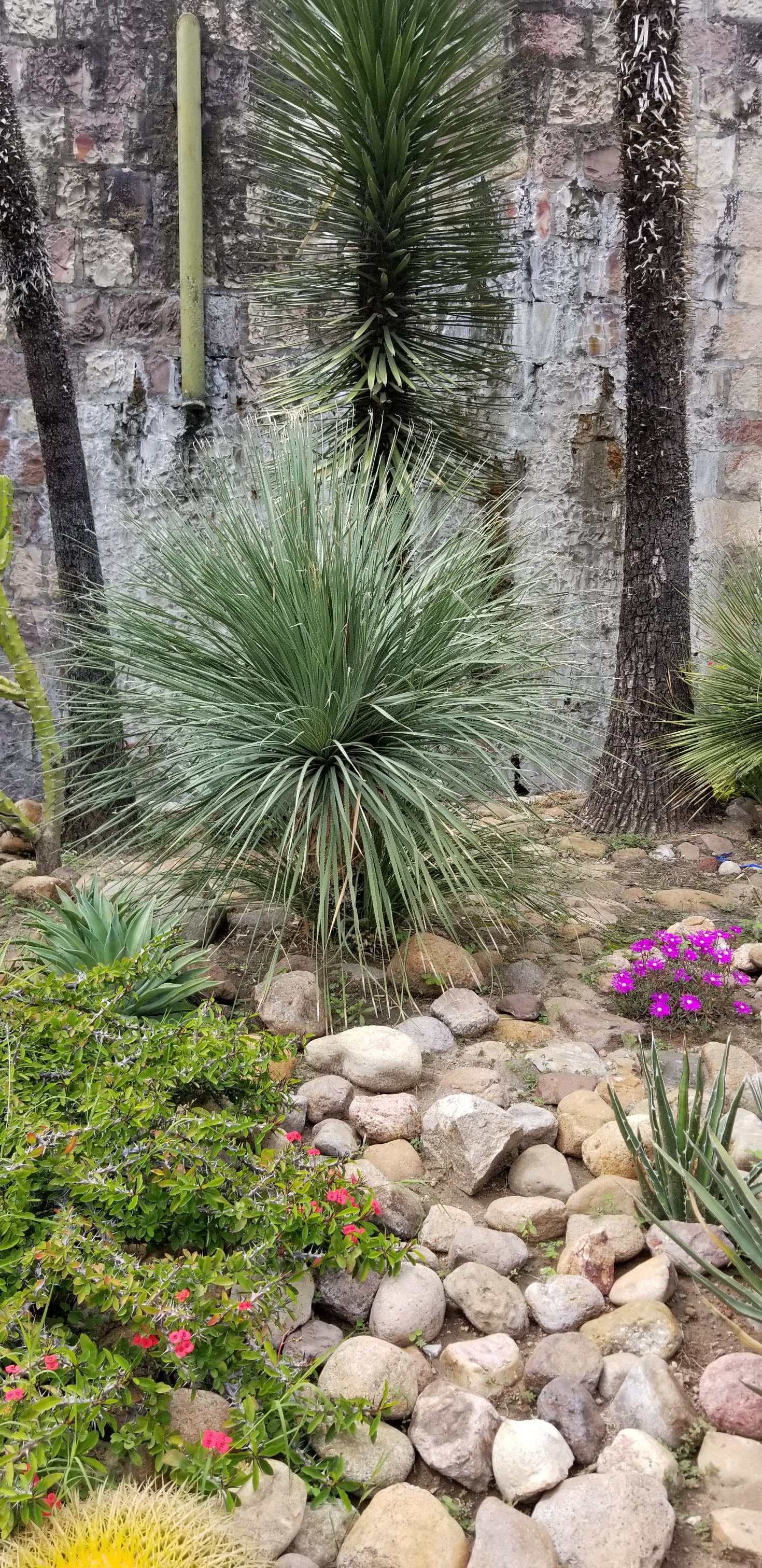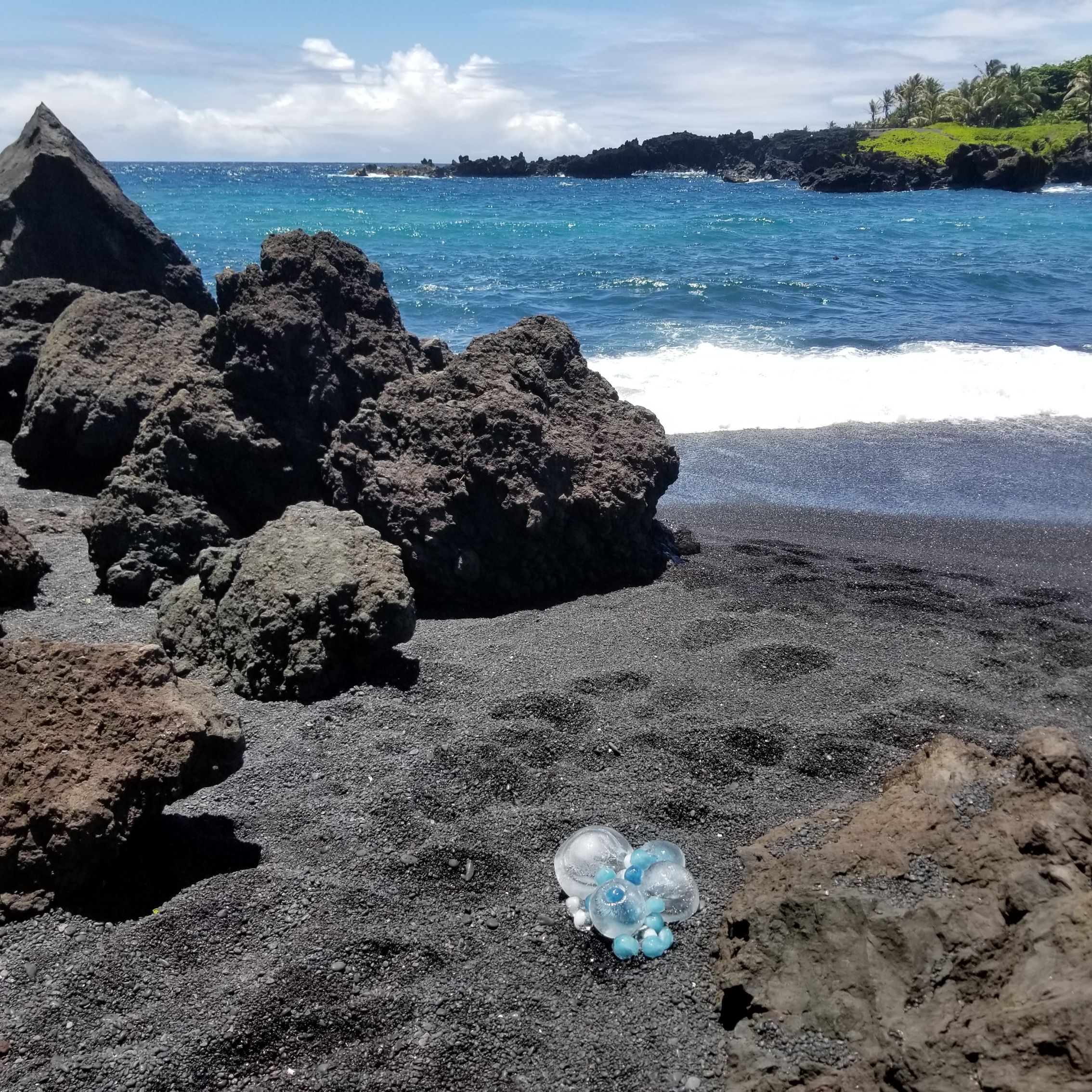Welcome to my new YouTube channel, Margaret Byrd:Color Quest as I move my Trail Tales blog to a vlog! Every Friday, I release new video content focused on the amazing world of natural color. Join me as I explore ways to forage and invite organic color into my creative practice.
Creative Currency
Whole numbers
I am now rich with sand dollars. Not the broken shells typically found in my childhood beach hunts, but perfectly whole specimens of this sea urchin treasure.
Seriously – we are talking the mother lode of sand dollars.
Never have I seen such a gorgeous array of sizes and colors of whole sand dollars washed up on the beach, Cayucos, California, September 2020.
So, what does an artist do with so much natural wealth?
Simple – leave it behind in exchange for creative inspiration that only the coast can generously offer.
Welcome to California’s Central Coast!
Bank holiday
My latest journey to visit my daughters living in San Luis Obispo filled my pockets up in more ways than one.
Christmas was the last time I saw my oldest daughter, Devon, and the pandemic had cancelled a springtime trip to play on the beach with all four of us together.
So, two weeks relaxing oceanside with my kids this past month was a true gift.
Hiking Harmony Headlands with my kids, Zsofi, Devon and Mason, August 2020. So much fun!
Exploring the sea cliffs at Montaña de Oro and Harmony Headlands state parks, watching my girls surf at Dog Beach and Moonstone, and catching some pretty sweet sunsets brought some big smiles.
Devon living the surfer’s life on Dog Beach in Cayucos, California, September 2020.
Zsofi shredding it on a foggy day at Moonstone Beach, Cambria, California, August 2020.
It also brought me the opportunity to connect more deeply with my surroundings by leaving small installation offerings as an ephemeral payment of gratitude.
Thank you, Central Coast.
Frozen assets
To tender ice as an artistic medium on a windy beach is exciting stuff.
Finding the perfect spot to create a brief visual experience involves sand, stone and surf. And, as you might imagine, not all places freely accept my form of creative currency.
You have to place a lot of ice to get a lucky shot, and luckily, the failures melt fast! Moonstone Beach, Cambria, California, September 2020.
But, failed attempts are all part of the trek, and without the stagger there can be no sparkle.
Ice installation is a true balancing act of patience and persistence. Cayucos Beach, California, August 2020.
All of the rejected installations are rewarded with laughter and lessons of letting go - critical elements of building a balanced artistic practice.
Bag of sand
Two beaches that are especially generous in their inspirational exchange along the Central Coast are the pebbly Moonstone and the long sandy strand stretching from Morro Bay to Cayucos. Although waves crash against both to sculpt the tideline, there are unique features at each one that draw me in time and time again.
MOONSTONE
Say hello to a rock hound’s paradise of agates, jade and jasper. Every visit I make to the area requires a few hours simply sifting through the stones. So, leaving a small ice installation to mimic the colors of the tumbled rocks felt perfectly placed.
Blue butterfly pea, hibiscus, spirulina and turmeric created beautifully vibrant ice sticks to complement the colorful stones on Moonstone Beach, Cambria, California, September 2020.
Ice orbs mixing with the salty spray of Moonstone Beach honeycomb rocks, Cambria, California, September 2020.
The wind whipped hard on the beach that day, adding to the expressive challenges, but my incredible kids stuck by my side (behind a driftwood shield!) so their free-spirited mom could artfully play.
Love you guys!
CAYUCOS
While this beach charmed me with its trove of whole sand dollars, it was the long, slow tide and larger rock outcrops that inspired my icy installations.
The proximity to our house made it an especially great space to experiment with frozen shapes across several days and in different light.
As the tide stretched in and out, tidal pools exposed vibrant sea anemones and their starfish friends.
The neon glow of the sea anemone at low tide was breathtaking, Cayucos Beach, California, September 2020.
The variation of barnacle formations and mussels on the exposed rocks created intriguing complements to the melting blue cylinders of ice.
Perhaps the most compelling geological feature was a sea stack that brought back memories of an installation adventure in Lofoten, Norway in 2018.
Granite Stack ice installation in Lofoten, Norway is one of my very favorite shots, October 2018.
I made several attempts to capture the essence of Granite Stack, and was treated to a special image in exchange for hours quietly washed away by the California tide.
Mussel Stack ice installation in honor of Granite Stack, Cayucos Beach, California, September 2020.
Stack ‘em deep
Seems that my creative reserves have been happily refilled by my time on the Central Coast, and for that I’m thankful.
The rush of excitement I felt by collecting fistfuls of sand dollars was immediately followed by a natural impulse to interact with their subtle beauty.
Sorting, stacking and releasing them back to the sea is somehow intertwined with the curiosity that drives my installation practice.
How comforting to know I can bank on this coastal inspiration forever.
The Art of Craft
Small craft advisory
As an artist, I aspire to be crafty.
Forget the misguided, and tragically oppressive Western narrative of ‘high art’ as somehow ‘enlightened’ and more valuable than the exquisite beauty found across all creative expression labeled as ‘craft’.
If you can translate an idea from mind to hand, the material is immaterial – you are an artist - plain and simple.
My creative curiosity has led me down a crafty path or two, and I’m now enamored with one diversion so often associated with handiwork: natural dyeing.
Some of my kitchen favorites for natural dye: avocado, turmeric, red cabbage and black bean.
While I could fight against the notion that this diminishes the value of my art, why would I entertain such a silly thought?
Nope. I choose to celebrate, my artist friends, so let’s get crafting with natural color!
Color classics
Focusing on colors from nature in #The100DayProject has filled my fridge with an incredible rainbow of botanical dyes.
Dyes brewed from foraged plants and food scraps during #The100DayProject.
Every time I find a new plant to brew, I add to my collection. When I see a color missing, I go searching for a plant. It is a never-ending exploratory cycle.
10 dye plants foraged from Tambark Park and my garden waste to study local flora colors.
As I shared my project, and the art I created with these dyes, I could hear the buzz all around me as people became curious themselves. Certainly interested, and maybe even inspired, to learn about natural dyes.
I get this. I have a history of being intrigued myself. It’s how this passion for organic color grew and how I learned what I know so far. Ironically, it seems the more you know, the more you want to know.
Having had many of the same questions when I started my love affair with nature’s palette in 2017, I have been searching high and low for answers ever since.
When I learned from a Dutch artist that seaweed was a sustainable source of dye, I headed to Iceland to investigate.
And, because sharing is caring, I’m very excited to tell you a secret I’ve been keeping all to myself:
Starting in August 2020, I will be releasing short tutorial videos and mini-courses all about the incredible world of natural color. My intention is to build a place where you can easily find the basics to get you inspired to add color to your life naturally.
Soon to be released YouTube channel, Cookin’ Color, with short video tutorials on organic dyes, August 2020.
The topic is HUGE. There are so many options and different approaches to extracting color, plus a multitude of ways to use it.
For me, organic color has been an integral part of my installation practice, and more recently my mixed media work. But a beautiful aspect of natural color is that it is available to everyone, no matter where you consider yourself on the art/craft spectrum.
Bioplastics cooked and cured with natural dyes in my kitchen studio in June 2020.
And, the botanical dye in my fridge right now is a perfect example of the countless ways we can weave natural color into almost everything.
Nature’s bounty
Finding a way to create color in an ephemeral installation without hurting an environment is how I got hooked on natural dyes. But as my #100DaysOfNaturesColors meandered its way through botanical dyes and earth pigments, I could clearly see just how many different ways I have been exploring color from nature. Maybe one or more of these will strike a creative chord with you too!
TEXTILE
Probably the most obvious and popular use of natural dyes is to create sumptuous hues for fabric. With a growing interest of sustainability in fashion, botanical colors are popping up from head to toe. If you’ve got natural fibers in your closet (cotton, hemp, silk, wool), you can dye organically – the options are endless.
Textiles of wool, silk, cotton and bamboo hand-dyed in Oaxaca exclusively with organic matter.
My first on-line workshop will be on how to create an ombre-dyed scarf from foods in your kitchen, and this fall, I will be teaching a similar technique using earth pigments. Incorporating these rich colors into a wardrobe is a delicious way to get your art out of the house.
However, if knitting or weaving is more your speed, soaking yarn, string or ribbon in a batch of botanicals can create subtle sweetness. Just look at the wonder of this wool I dyed in Mexico.
Wood hand-dyed in organic matter including indigo, muicle, pericon and cochineal in Oaxaca, Mexico.
While I preferred to use this fiber for installation, imagine a hat, scarf, mittens or sweater with that special colorful touch?
But who says you have to wear hand-dyed textiles? My mom was an avid quilter which I’m certain has influenced my mixed media textile pieces and love of squares.
Naturally dyed textile piece, Blossom, created while on residency in Oaxaca, Mexico, March 2020.
How special it would have been to forage with my mom and organically dye fabric swatches for her to sew into her quilt creations. Keep that in mind for the quilters in your life.
PAPER
Textile’s extended fiber family is paper. The delicate translucency of paper has intrigued me for quite some time, both for sculptural and 2D applications. In Oaxaca, I first tested how wet strength fibers like mulberry and tissue would hold the colors I had brewed, and it worked like a charm.
First time hand-dyeing paper with plant matter in Oaxaca, Mexico, March 2020.
So, one chunk of 10 days during #The100DayProject, I focused on creating collage with these dyed papers. The variations of color, especially when layering, felt closely tied to the depth I love to create with overlays of silk in my textile pieces.
Hand-dyed paper collage backlit in Tambark Park, made exclusively from organic dyes foraged in Oaxaca, Mexico.
Feeling inspired, I foraged local ‘weeds’ in my beloved Tambark Park the last 10 days of the project and made a new rainbow stock of colorful paper from the PNW.
Paper samples of natural dyes brewed from foraged plants in my neighborhood. Only blue butterfly pea was from my kitchen!
What’s wonderful about paper is its versatility across several art disciplines, and a true staple in many craft projects. Why not make hand-dyed paper with plants foraged from your neighborhood the next time the scissors and glue need some exercise?
INK
Dyeing paper is one way to spread some of nature’s colors around, but making ink turns just about any organic matter into a medium for drawing and watercolor fun.
I simply poured the dyes I brewed from foraged plants in Iceland and Mexico on paper, but learning how to make ink specifically was yet another way to expand my natural color wheel during the last 100 days.
Testing inks made from avocado skin and red cabbage during #The100DayProject.
I even made blue ink with my cherished blue butterfly pea blossoms for the first time, one of the most elusive colors of nature.
Watch out - lake pigments might be just around the next corner!
KITCHEN KRAFT
While all of the above may result in time at a craft table, a stovetop is still a critical element in a studio of natural dyes. Therefore, it’s no surprise that crafts of the kitchen can also add a splash of organic color.
Much of my installation work was born in the kitchen - infused ice, mung bean and playdough have been some of my edible shining stars.
Mung bean string installation naturally dyed with kitchen scraps in Sayulita, Mexico, December 2018.
Brewing organic dyes as natural food coloring for baking, cooking and blended drinks is certainly a fun way to add color in the kitchen. At the very least, you can start with next year’s Easter eggs having that natural color vibe.
This year’s Easter Eggs were dyed au naturel in turmeric, red beet, red cabbage, avocado and blue butterfly pea.
Plus, the kitchen is the perfect place to start playing with natural dyes in general. So many fruits/veggies, spices and even food scraps can make wonderful colors with very simple recipes.
In case you missed it this spring, download a copy of my Cookin’ Color brew booklet with a few of my favorite kitchen dye recipes, or better yet, sign up here for my 5 Days of Dye short video tutorial series releasing soon in a kitchen near you!
HEADING
Go ahead – call me crafty. I don’t mind at all.
To be honest, I question why any negative association became attached to a word that honors the vision and skill it takes to create beauty with your hands. To be an accomplished craftsperson is a lofty goal for any artist, and certainly one I aim for in my daily practice.
So, let’s keep spreading the art of craft in the world today!
The Tambark Ten
Frozen
The itch to travel runs deep in my veins. Funny enough, I’m also strangely content to hole up in my home for long stretches of time. Perhaps the balance for me is having an alternating pulse of movement and stillness.
With travel at a standstill, walking has become my movement of choice this spring, and as luck would have it, a small forested land sits opposite my house – Tambark Park. Daily excursions into the lush greenery spurred inspiration that translated into a surprisingly abundant creative surge starring two of my art darlings: ice and installation.
Shot glass ice installations popping up all over the place!
Boy, have I missed you two!
100 steps
Heading into the fourth 10-day chapter in #The100DayProject, I committed to placing installation right outside my front door. Until now, I had connected my installation practice solely to the exploration of distant lands – a way for me to personally interact with a landscape that provided wonder and inspiration.
One of many ice installations inspired by the breathtaking beauty of Iceland, December 2017.
You don’t have to go far in the PNW to have this sensory experience of marvel. Slowing down and opening up to my local surroundings brought me simple joy, loads of chuckles and some pretty sweet photos.
Organic dyes of avocado, turmeric and red cabbage melting in all their glory.
Let’s meander through these 10 days together.
Spark
Full disclosure - I stole the idea to place installation in Tambark Park.
As the world shut down in March, a beautiful trend of leaving small gifts of love and hope emerged. Walking the trails, I started noticing flowering plants that were not indigenous to the undergrowth.
Did forest elves plant these colorful treats amongst the cedars?
It took the brightly colored blooms at the base of several looming evergreens to notice a pattern: Someone was planting these in the darkest corners of the forest to offer light.
Another sweet offering scattered across the property were colorfully painted rocks. Spying the hidden stones became a visual treasure hunt I looked forward to playing every day.
Some of the painted treasures even had messages of hope.
These acts of kindness poked at my creativity, and so bloomed 10 days of installation.
Icy roads
Colors from nature first appeared in my art as a non-toxic way to tint the ice pieces I placed in Iceland in 2017 – the launching point for my installation practice.
Winter sunset through blue butterfly pea and red cabbage in the Westfjords of Iceland, December 2017.
Frozen climates eventually graduated to balmy locations to push the limits of ice as an ephemeral medium.
From tiny rental refrigerators to mobile coolers meant for chilling wine and travel snacks, I froze all kinds of shapes and sizes of water infused with plant-based organic dyes I brewed. I took some crazy pride in the lengths I went to transport my frozen works of art to their installation destination.
The ice cooler is a must-have on installation road trips, Maui June 2018.
Ice was an obvious choice for Tambark Park to stay true to my project of #100DaysOfNaturalColor. And to be honest, I never had it so easy! Using my full-sized freezer, packing a thermal lunch bag and walking no more than 10 minutes to place installation was an absolute dream.
The beauty of ombre dyes frozen in a full size freezer is pure magic.
Note to self: it doesn’t always have to be so difficult!
Secret garden
Tambark Park has a network of trails that meander through a mixed woodland. The search for more pristine locations, however, had me traipsing off the beaten path where I found some amazing nooks and crannies in the greenery.
Ice stack placed where few have ventured except for fallen trees.
I may have been only 20 feet from the footpath I walked every day, but it transported me back to the days of my childhood where we spent muggy summer days hunting for hidden places in the brush to build forts and play hide-n-seek.
Bumping into fellow hikers in Tambark Park while reemerging from the secret spaces always garnered a curious look and sometimes even a smile.
The green light
Blazing my way through the thicket meant I stumbled into some of the PNW iconic vegetation: erupting ferns, fuzzy tufts of moss, horsetail reed and skunk cabbage. Such variations of green allowed for creative play that produced a visual tension with the vivid colors of the frozen botanical dyes.
A colorful shoot of ice in the midst of fern fronds.
The woody stumps of fallen trees provided sumptuous textures in a wonderfully neutral palette that also allowed the ice to shine.
Ice marbles wedged into weathered wood.
Possibly the second most exciting discovery was bumping into stinging nettles. Yes, they left their painful mark on my hand, but without this accidental collision, I would not have been able to identify this weedy herb.
The stinging nettle that bit me during installation will be a welcome addition to my dye pot.
Soon I will head back to collect the leaves because they make the most incredible gray-green dye, a color not easy to find in nature ironically.
Creature comfort
And what would the flora be without the fauna? Hiding among all of this incredible foliage, I was treated to chance encounters with all kinds of animals:
Rabbits flourish here and spring is the time of baby bunnies.
One lone squirrel would rustle in the trees in the same spot almost every day
A bat swooshed just above my head on a twilight installation.
Even a snake slithered its way across my path!
But, the ultimate treat, and yes, THE MOST exciting discovery was a tiny friend who joined me on the very first installation.
The first ice installation in Tambark Park had an unexpected spectator (see below photo).
Thanks to patiently waiting for the streams of sunlight to hit just the right spot, I was lucky enough to catch a glimpse, and a photo, of this sweet tree frog.
The tree frog who sat quietly for more than an hour while I placed ice and returned to its melted remains.
She didn’t dash away, and even when I returned an hour later to check on the ice melt, she was still cozy in her hole, taking in the afternoon rays.
Ice flow
Where there are frogs, there is water, and Tambark Park has a lowland marshy vibe trickling everywhere. Many a day was spent mucking through spongey ground to install, but I also examined how a stream’s gentle current would dance with my ice pieces.
Mother’s Day ice installation in honor of my mom, Maia, who passed away May 31, 2019.
I’ve played with kinetic energy in my installation work, and certainly the simple act of melting is an inherent trait of mobility in ice.
However, running water provided many more layers of movement to explore: Releasing, floating, bobbing, flowing, dissolving, and ultimately, disappearing.
Frozen floats of organic dyes in Tambark Creek gone within minutes of placing this installation.
Movement, in fact, may be implicit in the ephemeral – an idea I am just now realizing.
Micro-living
Ten tiny days of micro-travel has had a macro-impact on a deeper understanding of my creative practice. Slowing down to open the senses to my immediate surroundings has brought wide open space for reflection. Yet again, I’m reminded that movement can be a collective effort of small steps, as long as I actively nurture its momentum.
10x10
Natural order
I’m a big fan of squares in my art.
To be more accurate, I should probably broaden that statement to say ‘I love parallelograms’ because rectangles and rhombi pop into my artwork as well. Since a square is a kind of rectangle and rhombus, but neither a rectangle nor a rhombus is necessarily a square, I may want to be more inclusive of the linear shapes that have inspired me for decades.
All kinds of naturally dyed parallelograms playing on this canvas!
Side note: Can you tell that I’ve been tutoring my son, Mason, in geometry this spring?
So, as I sat down to write this month’s Trail Tale to share my journey into #The100DayProject, I realized I was playing with squares again. Only this time, in an algebraic way: 10x10=100, or more simply written 10².
Projection
When mixed media artist, Natalie Dadamio, suggested I try #The100DayProject this year, I thought it would be a fantastic way to deepen my commitment to my creative practice. Knowing I would be grounded from travel, at least of the air variety, diving into 100 days of a focused art ‘project’ seemed like a wonderful way to enrich the time in my home studio.
We used to have a kitchen island, but that real estate is now gone, along with the dining room table.
But why 100 days, and how would this differ from the extensive hours in the ‘off-hours’ that I’ve already heavily invested in this crazy creative biz dream of mine?
Seems the consensus is as follows on the power of 100 days of focus:
It is long enough to create a habit
It is short enough to see the finish line
It requires setting an achievable goal
It demands planning to allocate time and space
It is extremely helpful to break it up into manageable micro-steps
Coincidentally, three of my 2020 goals are hovering right now in the 100 day range. Making healthy nutrition choices, increasing movement and meditating have become daily habits. Ways of living that seemed to elude me throughout the years are wonderfully entrenched in my world today.
And, I’m at least 10x10 times happier.
All smiles on the cochineal farm in Oaxaca, Mexico, March 2020.
100 days of art….bring it on!
Hash it out
First thing first was to decide what my 100 Day Project focus would be. As you may have noticed, I suffer from a kind of creative distraction disorder. My artwork crosses all kinds of discipline and medium lines as my curiosity drags me from one to another and back again.
So, how was I to choose just one of my many passions?
Easy: #100DaysOfMultiPassion
But, in an effort to corral those multi-passions of mine into a more cohesive project, I needed a theme.
One idea came to me naturally: #100DaysOfColorsFromNature
The rainbow of mineral pigments I foraged while on residency in Oaxaca, Mexico, March 2020.
Now, with not one, but two hashtags declaring my project, there was one tiny manageable micro-step I had to take.
Breaking it all down by 10.
Chunky monkey
As I hit publish on this blog, I’m about to celebrate my 25th day – one quarter done! For those of you following my adventures on Instagram, you have had a preview of where these 100 days are meandering. For those of you on Facebook – sorry!
Breaking the project down into 10 days each of 10 different ‘topics’ surrounding natural color felt like the perfect solution to keep me on task. Plus, I argued, it would allow me to truly explore all of the ways nature’s palette has inspired my art.
Pigment color studies from the regions of Peru where we explored and foraged in June/July 2019.
If you’ve read this far, you are in for a sneak peek of the full 10x10 plan. Plus, I’ll throw in a little commentary and few more photos of chunks 1 and 2 (Days 1-20) which have already flown by:
Days 1-10: Natural dyes
I may have started using organic colors in ice, but the list of materials I have dyed from nature also include textile, paper, bioplastics and even eggs. I may have left out mung bean and dough in this project, but I added a new piece to the dye mix – ink!
Cookin’ colors in the kitchen to make inks from red cabbage, black bean, avocado skins and turmeric.
Days 11-20: Mineral pigments
Over the past 1.5 years, I widened my color scope to include the earth beneath my traveling feet. Each day, I shared some of the subtle hues I foraged from 7 unique locations: Washington, Idaho, Oregon and California on the west coast, Pennsylvania to the east and Mexico and Peru to the south.
Pigmented stones foraged along Wissahickon Creek in Philadelphia, PA, July 2019.
Days 21-30: Textile colors
I’m midstream in the 3rd chunk and creation is underway. Every day I’m building a quick color study with textile remnants I have collected from larger pieces I built in Oaxaca. The idea is to push the design from a limited natural palette in a small space.
Textile Stack Series of quick color studies during #The100DayProject. Drop me a line to purchase.
If you want a piece of the action, each one of these mixed media works on canvas is for sale at $40.
What a steal of a deal!
Now the next 7 chunks are part of the plan, but I reserve the right to make adjustments along the way:
Days 31-40: Installation – I will place 10 new naturally colored sculpture clusters within 0.5 miles of my house.
Days 41-50: Oaxaca Minis – I will build 10 new 8x8 textile works on canvas from the full Oaxaca color range.
Days 51-60: Bioplastics – I will brew up all kinds of wonder with gelatin, algae and botanical dyes.
Translucency and botanical dyes all wrapped up in bioplastics.
Days 61-70: Monoprints – I’ve wanted to explore this technique, so I plan to create 10 pieces using only natural colors.
Days 71-80: Three shape challenge - Textile
Days 81-90: Three shape challenge - Monoprint
Days 91-100: Three shape challenge: Installation
Let’s just say the last 3 chunks are meant to hold my feet to the ‘simplicity’ fire.
The same artist who enticed me to join #The100DayProject (Natalie Dadamio), also challenged me to ONLY use three shapes in my work during the 100 days. I figured 3 chunks totaling 30 days fit perfectly into the 3 shapes theme.
The 3 primary colors very cooly represented by turmeric, red beet and blue butterfly pea infused ice.
These three are for you, Natalie!
Cubism
Riding shotgun to my 100 days, Mason has found a teeny space for his geometry book on the dining table that is now smack dab in the middle of my studio, aka our kitchen.
We started solving for volume this past week. All of the 2 dimensional shapes have introduced their 3 dimensional siblings: spheres, cones, pyramids and cylinders.
And yes, the glorious square is full of pride and flaunting its cube cousin just to make me smile!
My trusty installation travel buddies: earth pigment painted paper pulp blocks. Stack ‘em up!
I sure do love cubes…naturally.
The colorful Mr. Biv
The stuff of rainbows
Don’t know about you, but I have a handful of tricks up my sleeve to remember trivial bits of information. I am the maven of mnemonics:
Need to know how many days there are in April? Got my knuckles for that.
That 5 letter Great Lake messing up your crossword puzzle? Try H.O.M.E.S. on for size.
Pulling out the crayons to draw your sweetheart a rainbow? I’d like you to meet Mr. Roy G. Biv
I think it was my grade school art teacher, Mr. Malley, who taught us how to remember the seven colors of the rainbow. (Yes, I had a full time art teacher with a dedicated art room when I was a kid!).
Mr. Biv has been a tool in my paint caddy ever since.
The organic colors of the rainbow hand-dyed on paper in my residency studio in Oaxaca, Mexico.
So, of course, Mr. Biv was my travel companion to my artist residency in Oaxaca, Mexico, last month as I continued my quest to find the rainbow in nature’s palette. Let’s just say, we found all seven of his colorful letters and then some!
Red
The color of love (among many other things) is a highly sought after hue that has a history connected to imperialism and revolution. Minerals of hematite and cinnabar, the root of madder and several parasitic creatures have been foraged and crushed so we can bathe in red.
One insect in particular has become the darling in the wide world of dye: cochineal.
I had only bumped into cochineal about a year ago when I was preparing for my residency in Iceland. Visiting a dye master in the countryside two hours north of Reykjavik, Guðrún Bjarnadóttir shared the secret sauce of her scarlet wool yarn.
The gorgeous hand-dyed Icelandic wool of Hespa Iceland. Looks like a neutral cochineal soak to me with those bright fuchsias peeking through.
She had a large jar of cochineal that she imported to Iceland as her ancestors had done before. You see, red and its variations are not natural colors found in Iceland.
Cochineal is a parasite that lives on the nopales cactus indigenous to present day Mexico and Peru.
The white powder of the cochineal insect dusting nopales cacti before harvest.
Contrary to what you may think, the red comes from carminic acid, not blood, which acts as a deterrent against predators. Or, if you are human, it seems you are wildly attracted to it!
Working for three weeks on a cochineal farm in Santa Maria Colotepec in Oaxaca, Mexico, the secrets of its beauty were slowly revealed to me.
All the lovely shades of cochineal hanging out in wool yarn on the farm near Oaxaca, Mexico.
But, not only did this tiny insect produce the most amazing carmine color, it played a starring role in many of Mr. Biv’s letters.
Orange
Beyond the measurements I wrote about in last month’s Trail Tale, dyeing incorporates some elements of chemistry.
Who remembers those little litmus strips from your high school lab? Well, turns out cochineal is sensitive to the pH level in the dye bath. Add a bunch of lemon juice, aka. acid, and mira - orange!
Shifting cochineal neutral by squeezing lemons. The secret of playing with pH!
Makes me chuckle to think that adding yellow to red actually makes orange in this corner of the dye world. Trust me, that isn’t a hard and fast rule in dye chemistry, but cochineal happily plays along.
Yellow
I know what you’re thinking: lemon juice must be a key ingredient in yellow dye. Nope. I have recently seen Sasha Duerr, a natural dye specialist, create yellow from citrus skins, but in Oaxaca, we used pericon.
You may know this native herb as Mexican tarragon or marigold, both of which are used as dye in other parts of the world. The pericon grown and harvested on the cochineal farm, however, produced a gloriously vibrant yellow that demanded visual attention.
The green leaves of pericon cooking up some instense yellow on silk strips I used for installation in Oaxaca.
Move over marigold – you may have a rival nipping at your heels, but pericon may be tough to find in my local PNW nursery.
Green
When it comes to the plant world, it’s not easy being green.
Both, Guðrún Bjarnadóttir and Manuel, my Oaxacan dye master, utilize the primary color theory to achieve green. First you dye with yellow (pericon or another yellow source), and then you over-dye with blue (indigo), another elusive color rarely found in nature. Voila - green!
Although I attempted this on the farm with my wool yarn samples, I struggled with the indigo (more on that below). That didn’t stop me from experimenting in my own dye studio on days away from the farm, and I had some success.
Who knew the cold sludge of fermenting black beans could tease out such gorgeous greens?
No over-dye step required here. Just a 2 day cold soak in fermented black beans!
I was expecting a grayish blue dye result when I bought the dried beans in the Mercado 20 de Noviembre. You just never know with natural dye - the surprise element is one of its sweetest characteristics.
Blue
If you think red is tough, you haven’t met blue yet. Treasured minerals of lapis lazuli and azurite are pigments of royalty. In the plant kingdom, indigo is queen.
The cochineal farm is an educational venue exclusively focused on the natural dyes of the region, and indigo has roots in the tropical climate of the Oaxacan coastline. Manuel grows every plant we used on the farm, but his indigo suffers in the dry heat. So, as traders have done for centuries, Manuel brings his indigo crystals from the coast.
Grinding indigo with mortar and pestle before adding it to the dye pot.
Extracting color from indigo is a labor intensive process and one that requires humility and reverence. I was quickly humbled by the mystery of blue.
Indigo
With all the work that went into making 12 dye pots to create 40 unique colors over three weeks, saving indigo for last didn’t surprise me. However, I soon realized that rushing indigo at the end did not honor its spirit, and so it did not fully share its color with me.
The many shades of indigo from an ignored dye pot hanging out with no-fuss cochineal orange.
When I explained how tough my day with indigo had been, a local artist told me the secret of the blue goddess: one must be fully present without distraction or haste.
I love this thought. It rings true across so many aspects of life, and so now indigo is yet another gentle reminder of the beauty of presence.
Violet
The last letter in Mr. Biv’s name was a dual effort in the organic realm. That sneaky, chameleon of a dye, cochineal, can be shifted to a yummy color of the violet persuasion. All the alchemist has to do is sprinkle in minerals (various recipe options) which can shift the pH balance to alter the hue.
Cochineal neutral plus 15% alum working its violet magic!
No minerals to be had – no problem: muicle to the rescue! Picking the leaves of this medicinal shrub on the farm produced a lovely violet dye as well. I doubt these leaves are sold in my local farmer’s market, so they may be a color treat solely for the Oaxacan palette.
Dye me a river
The colorful experience I was so lucky to have in Oaxaca is not soon to be forgotten. Just ask Mr. Biv.
But, that hasn’t stopped me from building my own mnemonic device to capture some of the amazing tips I learned, and a few of the easy kitchen recipes that can produce a rainbow.
Feeling inspired to get your dye on now? Click here for the Cookin’ Color Brew Booklet to see if you can catch Roy G. Biv just like I did!
xoxo - Byrdie
Beyond Measure
For good measure
One of my new favorite sayings is ‘you can’t manage what you don’t measure’. It is a gem of Peter Drucker’s thought that I’ve applied to just about everything in my life recently:
The food I’m eating, particularly the sugar (cause of most evil in the world!)
The growing number on my email list (many, many thanks to all of you!)
The distance and length of time of my daily walk (finally a habit!)
I’m sure I’ve annoyed my closest friends by spewing this wisdom a few too many times.
Funny enough, measurement is strangely absent from much of my creative practice. My tendency is to eye it, guesstimate, and just plain wing it most of the time. The result is an inexplicable delight of the unknown.
Will it work? I never know, but I trust the surprise I may stumble upon is often better than any measured steps I could have meticulously planned.
Bob Ross calls these happy accidents, and I’m perfectly content crashing into some of my most beloved creations.
Bumping into the one and only Bob Ross at the Funko headquarters in Everett, WA 2019.
Drastic measures
Having a happy accident in art school may have started this trend of semi-controlled spontaneity. It is an example I speak of often, and I believe I may have even mentioned it in a Trail Tales blog of yore. Forgive the repetition, but I suppose that is how what we learn can truly sink in.
At the University of Montana, the Ceramics Department is world-renowned, many thanks to the unique work of Rudy Autio that pushed the conventional boundaries of clay. As a BFA student, everyone is required to take Ceramics 101 at the very minimum.
One of the beautiful slices of U of M art school is that it was the most welcoming, inclusive, non-competitive and encouraging environments I have ever experienced. I count myself extraordinarily lucky as I understand this experience is not always shared among other BFA programs.
Walking in as a complete newbie, I was wowed by the amazing work being produced by the graduate students, and incredibly inspired to bumble my way through an art form that has its roots in measurement. My professor, Beth Lo, was kind and generous in sharing her knowledge of this ancient art form, and I honestly tried to follow all the steps on each project we were assigned.
Honest.
Our final project was a chance to design anything we wanted to be saggar-fired in a vessel we built ourselves. As my 3D intrigue was beginning to bubble, as well as my installation curiosity and unexplained love of all things square, I knew exactly what mixed media magic I wanted to create, and I quickly sketched the design and built a board to describe my vision.
One of my BFA thesis mixed media pieces used in an installation. This was the vision I had for my ceramics project.
When Professor Lo pulled the vessel from the fire, she warned me that I would be extremely disappointed in the result because it was nothing like what I had planned.
The center piece of the biggest mistake in my art career, 1995.
True, the 5 cube forms were not the smooth porcelain surface I was after, nor the rusty colors of the earth. They were a bubbly mess of grays and blues with ashen edges. My idea of embedding polaroid transfers into the center square was quickly washed away by residual globules of mis-measured glazes that had an unexpected combustion soirée in the kiln.
I was blown away, smiling from ear to ear, because I could never have planned such surprising beauty. At that moment, my professor told me I would be well-suited in the wild world of art.
Measure up
For the past two years, I have become passionate about extracting color from nature. Much of this was driven by a desire to use only organic matter in my installation practice, particularly when leaving a piece of art to dissipate into the earth.
Starting in my kitchen, I began brewing colors from spices and vegetables I found in my cabinets and fridge. From there, I became curious about foraging for botanicals and experimented by creating dyes from seaweed and lichen. My longstanding love of stone lead me to the world of minerals and earth pigments. Yes, I am officially addicted to the quest for a natural palette.
The colors of the rainbow courtesy of Moonstone Beach in Cambria, CA.
And, the exploration continues. Today, I am writing from my artist residency studio in Oaxaca, Mexico, a global center for textiles and botanical dyeing. My intention is to learn by doing with hands-on instruction from a dye master of the region, as opposed to my stand-by instructor known as the internet.
How will things measure up?
In short measure
As I’ve quietly entered the wide world of natural dyeing, I’ve become acutely aware that ratios, weights and recipes are quite important in assuring a desired color result. I have the utmost respect for the long history of passing precise knowledge from master to pupil. Beyond that, I am humbly grateful to have the unique opportunity to simply learn about botanical dyeing.
My master, Manuel, teaching me the Zapotec dye tradition from the Oaxacan region in Mexico, Feb 2020.
Manuel, the dye master in my residency, has shared many local practices along with some practical advice about what to avoid:
Don’t let your dye come to a boil to avoid losing the colorant to vapor
Don’t brew your textile with your botanical material to avoid splotching
Don’t let the textile touch the bottom of the dye pot to avoid color variation
Don’t stray far from the ratio of plant-to-water-to-textile to avoid weak color saturation
Don’t dry your fabric in the direct sunlight to avoid quick color fading
All of this makes perfect sense in the world of order and consistency, but as Manuel noted, none of it is a guarantee of color perfection to match your mind’s eye. It’s Mother Nature’s job to figure that out for you.
With this wisdom, I believe I’m perfectly suited for organic dyeing. The joy I experience is in the unique variation of color that nature chooses to surprise me with every single time.
First color swatches in my residency studio with textiles brought from the US and NL. Excited for the wool yarn soon to dye at the farm with Manuel!
In fact, I hope to never dye the same color twice, and splotches – bring ‘em on!
In equal measures
On my mantle, I lovingly display the biggest mistake of my BFA program, and my most cherished piece of art. These explosive cubes of clay are a constant reminder that although measurement is important, celebrating the unexpected is the spark of life.
Wonder what color surprises Oaxaca holds for me the next few weeks? Stick around for the big reveal in next month’s Trail Tales!
Listless No More
Paper cut
For someone who claims to be an artist, I have a problem with paper. Don’t get me wrong, I have it strewn everywhere, and I think handmade papers are sumptuous. But, I recently realized that I am a total tight wad with it. Not sure where I picked up this thrifty habit, but I’m actually afraid to use it.
This bizarre quirk certainly didn’t come from my mom. She was famous for having stacks of legal pads all over the house with her chore lists on them. You know, things like ‘dung bathroom’ and ‘H2O plants’.
Now…my aversion to list making definitely sprung from those piles of yellow paper. I became a master of tactile tricks to access all those lists I kept cluttered in my mind. I mean, writing lists meant using paper – duh!
So, as I sat down this month, for the first time in my life, to review 2019 in great creative detail, I had to face two of my weirdest demons: consuming copious amounts of paper to create extremely long lists!
All good intentions
The first time I heard about writing down yearly intentions was while on a creative business retreat in San Miguel de Allende, Mexico in 2018. My coach, the amazing Desha Peacock of Sweet Spot Style, gave me a journal and told me to sit quietly and write.
Thank you, Desha Peacock, for standing by my side on this creative journey, San Miguel de Allende, Mexico, March 2019.
Not only did I not want to ruin the beautiful custom journal she gave me by…gulp….writing in it, I also had no clue what I would actually write.
Funny enough, with a few guiding prompts, one of which was to write in the present tense, I let the ink smudge all over the pages of that journal.
And did I write! Once I started, it seemed to flow out of me with wild abandon, and I didn’t even flinch when I turned the 3rd page of that journal and just kept writing.
The page in my journal where it all began: setting intentions in 2018.
It felt decadent - so many words, and even some lists.
It felt reckless - didn’t even stay in the lines and my handwriting got really messy.
It felt amazing!
Watch, rinse, repeat
You can imagine my surprise when two months later, in Nicholas Wilton’s Creative Visionary Program (CVP), I was asked to set my intentions all over again. Having recently decided to chase my creative dream, I did exactly as I was told. I figured, if I had heard it from two people I trusted and admired for building successful creative businesses, it must be a worthwhile activity.
Plus, this time, the paper got a whole lot bigger (24”x36”) and I could mix up the words with some pictures!
The extremely cluttered Desire Board of 2018. Thank you for all the visualization, CVP!
Once the intentions were set in my journal and the dream board was up in my office/studio, my only job was to read them over and over again.
I should have known something was going to happen. But it would take hindsight and that old standby of 20/20 vision to really understand the magic of it all.
Color outside the lines
Fast forward to today as I sit with my 2020 Leonie Dawson’s coloring book of a creative planner. As a first timer to this whole ‘plan a year in advance’ stuff, and with my strange aversion to writing paper and lists, Leonie’s planner is a perfect place to feel like I’m playing and creating, instead of being so darn serious. I don’t mind doodling, crossing words out or using as much or little of the pages as I like.
It’s actually quite fun.
The first planner of my creative business should be bright and colorful, no?
So, what about this magic outside of the tattered pages of my 2020 workbook? And what, if anything, did my intention setting and dream boarding from 2018 have to do with what I saw in my 2019 year in review?
Very simply: Everything.
First rate
2019 was a year of firsts in my creative practice and newly built business. Seems while scribbling in that journal and pasting cut-outs on that board in 2018, I predicted many of those firsts:
A few of my 2018 intentions that came to life in 2019.
Fully funded art residencies: My very first artist residency happened in February 2019 in the Westfjords of Iceland. Although it wasn’t fully-funded, I was a finalist for the Mary Olson Farm Residency in April 2019 which is a paid program. I wasn’t ultimately selected, but I got my eye on the prize this year.
Large scale global installations: My very first gallery sponsored installation was in March 2019 in San Miguel de Allende, Mexico. Global – check. Large scale – for me, yes. I created a hanging abaca installation of 100+ pieces that was 13’ high and two 5’ tall exterior installations. Thank you, Galeria Manuk, for letting my swizzle sticks sizzle.
New mediums – glass and wax: Dabbled a bit in wax in 2018, but the new medium in 2019 was bioplastic. Sure has a glass-like vibe.
Bioplastic urns made from gelatin, glycerol and organic dye soaking up the surf on Cannon Beach, Oregon, Nov 2019.
Clutter-free: 2019 saw some huge life changing events, one of which was a serious drive to release as much clutter, both physical and mental, as I possibly could. This process of simplifying has brought about more creative abundance, and I couldn’t be happier.
Healthy mind, body and spirit: I suppose this intention is a life-long desire for most of us, but I experienced a surge of passion and focus on making these 3 pieces a priority. It’s a work in progress and high on the list for 2020.
Full-time artist: Funny – I now see I’ve been doing that my whole life.
I plan to keep the rest for now. Reviewing them today, I wouldn’t change a thing, but I’m excited to work on adding to it with 20/20 vision.
Bucket list
Maybe building lists is not so bad after all. I may still need to work on my paper chase, but I’m not afraid to use a few more pages in my journal to continue setting intentions.
And as I do so, I’m going to refer back to one of the first lists I wrote in 2018. It’s simply a list of the feelings I’d like to surround myself with as I walk towards my goals in 2020:
Follow the feelings to find the experience.
No need to cross anything off of that list.
Cheers to 2020! Please share a word from your list in the comments below…
Kisses - Margaret
Pacific Passion
Empirical data
Growing up in the 70s, the Earth had four oceans and our solar system had nine planets.
Somewhere along the way, Pluto was downgraded to a dwarf planet while Antarctica’s icy waters became the Southern Ocean to make five. Although I have never been to Pluto, I have had the good fortune of dipping my hand into each of the 70s’ four oceans.
What I remember of the Indian Ocean was trying to keep my mouth closed as we splashed our way at high speeds out of the Maputo harbor. The grayish oil-slicked water turned to a crystal clear azure as we jumped fully clothed into its surf to swim to our sandy beach destination.
My tummy ached from all the laughing we did that day.
The crashing waves and windswept moments frozen along the Arctic Ocean have a stronger pull for me to return. From Northern Iceland to Lofoten, Norway, my polar curiosity is headed further into this frigid sea as Svalbard now beckons me north.
Abaca swirls installed on Uttakleiv Beach in Lofoten, Norway, October 2018.
Both sides of the Atlantic Ocean have provided countless memories from north to south: the rocky coves of Maine to the beaches of Ipanema in Brazil, all the way to the red sand of Angola and to the edge of the Irish Cliffs of Moher.
Everyone needs a travel buddy! Pre-installation times with Chris at the Cliffs of Moher in Ireland, March 2016.
Simply put, I love the ocean, all four of them, but the Pacific is the one I call home.
And, in the past two years of travel in pursuit of creative inspiration, the Pacific has called me home time and time again.
Piece of peace
Being born in Oregon and living much of my adult life in California and Washington, I can safely call myself a west coaster, the rugged home to one tiny slice of the Pacific.
As with the Atlantic, I have stood on the edges of the largest ocean from north to south and east to west.
However, my creative journey along this shoreline has kept me nestled on the western side of the Americas.
The memories are many, but in an effort to quietly honor the Pacific, I’d like to share my gratitude with one simple installation photo from each of six sandy destinations, as well as one lesson I’ve learned at each beautiful seascape.
Join me as we head from north to south…
Washington
I adore beach combing and will spend much of my time on the coast with my head down, fixated on the treasures in the sand. The Washington beaches are wide and hit hard by wind and rain which brings incredible gifts from the sea.
Lesson 1: The beach covered with thousands of deep blue Velella, the sailor’s jellyfish, is a rare phenomenon that I was lucky enough to stumble upon, and install within, much to my creative delight in April 2018.
Oregon
My mom instilled my love of walking along the rugged beaches of the PNW in the off-season. Hunting for agates or sand dollars on the Oregon coast filled many stormy winter holidays in my childhood. The harder the wind and rain pelted our faces, the further we walked.
Bioplastic swirls in all their translucent glory, sun-drenched on Cannon Beach, Oregon, November 2019.
Lesson 2: The sun can shine with clear blue skies even at Thanksgiving on the beach in Oregon. I could not have asked for more perfect weather to explore the translucency with the first installation of bioplastics in November 2019.
California
The further south you venture does not change the temperament of the Pacific. The beaches of California are equally as wild as those of the Northwest.
Although my daughters may don a wetsuit to surf the Central Coast, I can honestly say I have rarely, if ever, spent time frolicking in its waters.
It’s too darn cold!
Paper pulp sticks installed in black iron oxide along a vein of red ochre on Tamarack Beach in Carlsbad, CA, October 2019.
Lesson 3: Learning about earth pigments and how to spot minerals in cliffs along the watershed has enhanced my creative beach experiences immensely. The red lines of ochre running through the weathered sandstone looks amazing next to the black iron oxide glittering as magnetite in the California sand.
Thanks to you, Golden State, for making such installation dreams come true.
Maui x 2
To visit Maui is a beach bum’s dream come true, but to return unexpectedly within a year is where manifestation blooms. Blending a perfect mix of tropical and arid landscapes with warm crashing surf makes Maui the hot climate version of the wild Pacific.
Threaded orbs installed in lava rock in Makena, Maui, June 2018.
Lesson 4: From lava rock to pure white sand, finding sites for installation in Maui is always made easier with the sparkling blue seas as a backdrop no matter when you visit.
Paper pulp stack installation on driftwood at Ukumehame Beach, West Maui, April 2019.
June 2018 or April 2019 equals installation inspiration all the time!
Mexico
The west coast of Mexico has treated me to some wonderful times splashing in the waves. Similar to Hawaii, but without the wide open Pacific pounding from all sides, the water in Mexico is deliciously warm with the perfect hint of swell.
Ice shots infused with botanical dyes and stacked on dried fronds at Haramara in Sayulita, Mexico, December 2018.
Lesson 5: And from swell, I really mean sweltering, particularly in the dry tropics of Sayulita in December 2018. If you want a creative challenge, ice installation on this coastline will test your patience and your sandy limits.
Blink once, and it is gone.
Peru
If the Pacific of North America has taught me anything, she keeps true to her mission of creating stunning beauty wherever she makes landfall. Peru is no exception, and as luck would have it once again, we walked alone on some of the most beautifully wild beaches you could imagine in June 2019.
Wheat paste paper stack installation in the sands of Playa Supay in Paracas, Peru, June 2019.
Lesson 6: The plight of plastic runs deep in the Pacific, and sadly, I experienced this in spades in Peru. We picked up as much plastic as we could carry from this seemingly pristine beach that blessed me with multiple installation sites.
Safe to say, my discovery of bioplastic was bred from Peruvian sand.
From the depths
So, darlin’ Pacific, thank you...
Your vast beauty will stir at my creative soul forever, even with the magnetic pull of the Poles. And, although I have my sites in 2020 on the North Pole of the Arctic Ocean, I’m coming for you too, Southern Ocean.
We shall meet one day on the 7th continent for an installation this artist is destined to place, because let’s be honest: you are simply the wild cold cousin of the mighty Pacific.
Into the biodome
For the love of lava
Flying between the Pacific coastline and the Cascade range is a visual treat on a clear day. Making this trip up and down the west coast is all in a day’s work for this technical sales person turned traveling artist. If you’re extra lucky, the plane may even fly directly over some of my favorite volcanic peaks like Crater Lake or Mt. St. Helens. Living near Seattle, we are almost always greeted by the giant of them all, Mt. Rainier.
Even on a cloudy day, Mt. Rainier always pops out to say hello. Portland bound, October 2019.
As you know, I’ve got a thing for volcanoes and all things lava. Many of my dream destinations are volcanic hotspots – Iceland, Hawaii, Mexico, Peru and my home turf in the PNW.
What I didn’t know was that one of the most incredible architectural designs, the dome, was also a natural phenomenon in the world of lava. Just inside of Mt. St. Helens crater, for example, is a beautiful lava dome, all perfectly rounded from hot magma.
A tiny peek of the lava dome in Mt. St. Helens from 30K feet. Still Portland bound, October 2019.
Somehow knowing this, makes my pursuit of the dome shape in my installation work much more interesting. Rather than connecting it to the architectural design feats of Dome of the Rock or Taj Mahal, I’d like to connect my inspiration back to the greatest artist of all – Mother Nature.
All that glitters
The dome shape came to my creative practice because of a simple craft kit I saw in a department store during a Christmas shopping blitz: glitter bowls. You just never know where your next idea might pop up, so keep your eyes and mind wide open!
Glitter bowl’s brother from another mother - the thread bowl.
Eager to explore new shapes, the kit came with the first materials I would test: glue, glitter and three sizes of plastic molds. The kit was intended to make small sparkly jewelry bowls, but I saw everything upside down.
The first of the upside-down glitter bowl, aka. dome, all sparkly in blue, January 2018.
These molds would become my architectural ‘crutch’ to defy gravity and build my first dome. Rushing from store to store to gobble up as many holiday glitter bowl kits as possible, while supplies lasted, I managed to collect an army of molds so volume production could begin.
Crumbling down
Glue is pretty amazing while glitter is just plain pretty. Combine the two and some visual magic can happen.
For six months, I feverishly built domes, and they had a starring role in my installation work in Mexico, California, Hawaii and Oregon.
A spruce bush in San Miguel de Allende all spruced up with glitter domes, February 2018.
I loved them so much, I began searching for a way to display them for an interior installation that could be submitted for art shows. The inverted domes, aka bowls (haha), could be nested with various sizes and colors, and adhered to a flat surface of wood or canvas.
Upside-down domes all nailed down and ready to show, March 2018.
There was one major problem with the design: glue is no friend to climate change. Everything I designed inside, and certainly those that traveled long distances, had no chance of ever surviving.
The domes became a brittle pile of shards or a melted glob of goo.
The dome remains after a long, and obviously hot, flight from Maui, June 2018.
Back to the drawing board.
Pro Biotic
One aspect of the glitter dome that I loved was its translucency. I’ve been chasing this in my work forever (hello ice!). One major characteristic I was less in love with was the inorganic material used to make glitter today – plastic. While I tested mica as a sparkly organic substitute, it did not provide the same binding properties as glitter.
Mica plays the sparkling role in these gold domes, Black Butte Ranch, Oregon, August 2018.
As my installation practice developed, my search for organic material has expanded:
· Brewing vegetable and spice dyes from my kitchen to color my first ice installation in Iceland
· Foraging plants like lichen and seaweed to dye textiles for my mixed media canvases
· Hunting for mineral deposits to create earth pigments as a material for paper studies
My quest to create ephemeral sculpture that can dissolve cleanly into the soil has become an integral part of my artistic world.
But how to find a translucent material made from botanicals that could hold a dome shape?
Hello mung bean!
Hibiscus dyed mung bean all domed out in Aguas Calientes, Peru, June 2019.
Biodiversity
Ahhhh….the short-lived life of a mung bean dome. Yes, it can drape across a form and hold its translucent shape, but again, travel and the elements are not kind to mung bean. Even more delicate than ice, the mung bean dome could barely handle a five hour flight.
Ode to a mung bean dome after many an installation flight.
Yes, I could sleep peacefully knowing the organically dyed mung bean would return quietly to the earth. But, if it can’t be transported to the installation site, it’s burnished glimmer is lost before it’s ever seen.
While repeated material disappointment might stop some in their tracks, not this artist. Every single iteration of my dome has been an informed failure for the next discovery. Without each of these stumbles, I would never have found the newest material I’m so excited to explore – bioplastics.
Oh, let the light shine in, you gorgeous bioplastics, you! Bothell, Washington, November 2019.
Dome 3.0 is born!
Biosphere
This weekend, I cooked up my first batch of bioplastics. Built from organics of agar, glycerol, gelatin and water, the quick and toxic free recipes were easily brewed on my kitchen stove. Adding dye steeped from the blue butterfly pea and hibiscus flowers created subtle shades of grayish blue and purple.
Beyond the dome: molding square bioplastics in my Bothell kitchen, November 2019.
As they quickly hardened in various molds, translucent forms emerged as the water evaporated during the curing progress. Shrinking and contorting, every day a new shape has appeared.
Agar bioplastics morphing back to algae, November 2019.
Now, it’s time to test the dome. Only problem is I have no idea where those molds are in my new garage, soon-to-be studio.
No worries – I have time. The bioplastics are sure to stick around.
Beyond the biodome
Finding a name for a shape before it’s even been built, I just know the biodome is going to be a success. Beyond the lava field, some of the most beautiful ‘biodomes’ constructed by humans have been igloos, wigwams and beehive houses. Anything built of ice, bark, reed and mud is an inspiration for an installation artist like me.
Into the biodome I go…
Head into the comments to join me!
The heART of Idaho
In the flow
Sunbeam, an old ghost mining town on the Yankee Fork of the Salmon River, is the geographical center of Idaho. What a perfect name to describe an area of the world that has been shining it’s light on my heART for 50 years.
Just up the river is a town called Stanley, a mere stone’s throw to Redfish Lake, a place where my family spent many summers exploring the pine forests and mountain trails of the Sawtooth National Forest. We were like the sockeye salmon of the past, the red fish, returning year after year to splash in its crystal clear waters.
Earth pigment paper pulp installed in Redfish Lake near Stanley, Idaho, August 2019.
If you keep swimming up the Salmon River to the south (yes, it primarily flows north!), the source of its bubbling coolness is hidden near Galena Summit.
Will always stop at Galena Summit to take this breathtaking view all in!
Carrying tire tubes around our waists and sneakers on our feet, we hunted down the perfect rapids to freeze our bums as we floated our way back towards Stanley.
Now, descending the other side of Galena, you enter the Boulder Mountain Range and the headwaters of the Big Hole River. Flowing right past Easley Hot Springs, our family’s cabin still stands among the trees, although we haven’t owned it for decades.
The rustic cabin my family owned near Easley Hot Springs where special memories were made.
That doesn’t stop us from still soaking in the mineral pool…
Mason and Zsofi having a soak with their cousins at Easley Hot Springs near Ketchum, Idaho.
Wandering up a nearby forest service road, you find yourself along Boulder Creek in the midst of an aspen grove. Among all of this endless beauty, however, this place is now where my heART of Idaho truly lies.
Mason out exploring the road that leads to my mom’s resting place near Boulder Creek, Idaho.
Colorfast
There is no doubt that installation would have taken me to Idaho one day, but to create artwork in loving memory of my mom and her resting place was a beautiful honor. With very little time to prepare, I let the earth be my guide: organic dyes I brewed from avocado and lichen, natural pigments from around the world and all kinds of stone.
Preparing installation of hand-dipped paper in home-brewed avocado and lichen dye.
As luck would have it, the natural color palette hovered in the ochre and hematite family: rich yellows, deep oranges and earthy reds. Ochre has a strong history of being offered to ancestral spirits for their journey in the after-life. My mom received the same beautiful offering.
Earth pigment paper pulp stacked on a boulder bursting with minerals, Little Redfish Lake, Idaho, August 2019.
Substrates of paper and it’s pulp, ice and river stone held each subtle color that nature provided for my mom.
Ice installation infused with lichen and avocado dye, Big Wood River, near Ketchum, Idaho, August 2019.
Rock on
From Redfish to Boulder Creek, I spent quiet reflective time exploring each site that has brought me so much joy and helped fuel my love of vast landscapes. My family, however, has always been by my side in Idaho, so sharing an installation that we could build together was the ultimate gift.
Collecting stone from the Salmon River with my loved ones, we each painted a personal creation with mineral pigment to leave by my mom near Boulder Creek.
River stones of the Salmon River collected and ready to paint. Can you see my heART stone?
My family gathered for an evening of river stone painting with earth pigments and walnut oil, Ketchum, Idaho.
Each step along the way held a sacred visual and emotional transformation.
The uniquely beautiful works of rock art by each member of the Willms Family ready for my mom’s memorial on August 13th, 2019.
The river stones will forever adorn the forest floor at the base of the small pine tree we planted for my mom’s ashes to nurture in the rich Idaho soil.
My mom’s resting place among the pines and aspen of Boulder Creek, Idaho, August 13th, 2019.
I left my heART…
For me, the heART and soul of Idaho is just up the river and over the pass from Sunbeam. The feel of ice cold water rushing through my toes, the smell of sagebrush warmed by the sun, and the sound of the wind rustling in the trees will always bring me right back. I’m forever grateful that my mom and her family brought me here so I could fall in love with such an amazing place and leave my creative installation behind.
My heART stone just for my mom, Boulder Creek, Idaho, August 13th, 2019. I love you, Mom!
Now I have the joy of returning to sit quietly with my mom under the whispering aspen and watch as her tree grows towards the deep blue sky.
Peru Rocks
Stone age
Peter is my catholic confirmation name, or en francais, Pierre. While my female classmates chose more traditional saint names like Mary or Theresa, I had to add a dash of creativity to the catechism mix. If Jesus built his church on the rock of Saint Peter, I argued, it was certainly a name strong enough for me.
Pierre also means ‘stone’ in French. Maybe that is why I picked it. Could I have known then that I simply wanted my spiritual name to reflect the deep connection I have with rocks?
The rocks in my pocket from Moonstone Beach in California, July 2019.
At about the same age, my daughter, Zsofi, had an equally creative wish, not focused on a spiritual graduation, but the much more secular version of high school commencement. Zsofi requested a trip to Peru as her graduation gift. Nothing could have made this wanderlust mama prouder!
Zsofi, Devon and Brianna defying gravity above Playa Roja in Paracas, Peru, June 2019.
What I did not realize at the time was that Peru would unearth my love of stone in the most remarkable ways.
Minerality mentality
Massive tectonic shifts and a healthy dose of volcanic rumbling creates some of the most amazing landscapes for this artist. Welcome to the Andes!
Sabancaya belching her volcanic mist near Patapampa Pass in southern Peru, June 2019.
With over 50 hours of Peruvian bus time logged, my nose spent most of it pressed against the window. Every mountain pass brought a new and wildly fresh vista for my eyes to feast.
While I’ve always been an avid road trip gazer (will not sleep in a car!), I traveled through the Altiplano with a newly acquired knowledge and pure fascination of earth pigments.
Mineral pigments I foraged and ground near the ancient sea bed of Paracas, Peru, June 2019.
One year ago, I bumped into an incredible creative philosopher and professed mineral pigment worker, or whisperer as I prefer to think of her. Heidi Gustafson has dedicated her practice to honor the sacred mineral of iron oxide and her earth pigment sister of ochre. I became increasingly intrigued by her work and thrilled to learn that she lived less than 2 hours away in the great PNW. When Heidi offered a mineral foraging workshop on Whidbey Island, I jumped at the chance to walk the beach with her to learn how to extract color from yet another one of earth’s natural resources.
Pigments I foraged and ground from Whidbey Island thanks to the mineral genius of Heidi Gustafson, June 2019.
What I learned that day would be exactly what I needed to begin my first solo quest for earth pigments in Peru.
Pack it out
Installation has become an integral part of my global travel. Weeks prior to launch, I am feverishly gathering, testing and building materials to create installation while on the road. With only a backpack and my daughters by my side for our time in Peru, I chose to re-imagine how I would express my creativity on this treasured trip.
All loaded up in Cusco, Peru, with everything I could carry on my back (and front!), July 2019.
As if by magic, a new conceptual plan emerged in the right side of my brain: installation vs. extraction. I would explore Peru’s landscape with an open heart, seeking balance of giving and receiving - installing and extracting - the earth as my guide.
In my veins
Pigments on my mind, I chose to install predominantly paper pulp pieces painted in minerals sourced from other regions north of the equator. With a newly opened eye to identify minerals that had the potential of sharing color, I discovered many places where I could make an installation ‘offering’ as gratitude for the rocks the earth presented to me.
First earth pigment offering at Playa la Mina in the Paracas National Reserve, Peru, June 2019.
What I didn’t expect was the obsession with which I would seek out color in the rocks of Peru. In many ways, I suppose traveling by bus was a perfect way to curb my enthusiasm, or at least keep me from stopping at every curve in the road to hunt pigment. Perhaps it gave me the reflective time I needed to practice simply sensing the rifts where color might be ready to mingle with an artist.
Easy to see the earth pigments in the Mountain of 7 Colors, aka Rainbow Mountain, Peru, July 2019.
From the ancient seabed of Paracas to the pinnacle of Vinicunca, the rocky soil gave me yet another incredible palette to sprinkle into my artwork. The handful of stones I will lovingly grind in the following months will be cherished not only for the subtle colors they will reveal, but also the memories I was lucky enough to forge with my daughters in Peru.
Stones collected along the route to Cusco, itching to have their pigments ground.
Rock ‘n roll
So, yes, I love all things stone, and I have for a very long time. My grandfather had an incredible rock collection that mesmerized me with their crystalized innards or smoothly polished surfaces. My best friend, Maggie, recently reminded me of a garnet hunting expedition we took as kids. Time at the beach often involves taking close up photographs of the pebbles beneath my feet as opposed to the crashing waves. I even named my son in honor of stone: Mason.
However, if I’m being totally honest, my catechism name was only coincidentally connected to rocks. Admitting my name inspiration may have come from a crush I had on the guitarist Pete Townsend of The Who, I’m fairly certain the clergy would not have approved. Still, it is fun to think I may have a higher calling to be grounded in the world of stone.
Tell me: Do stones rock your world?
Mama Me
Storm a’brewing
Two years ago, I brewed some organic dyes, froze some ice and picked up my camera again after many years of creative quietude. What caused this sudden surge of the artist within? That’s an easy one to answer:
My mom, aka Maia, Mama, and even sometimes George (weird teenage phase for me!).
My mom’s last big road trip to see the solar eclipse in Sun Valley, Idaho, with my daughter and brother, Devon and Tony, August 21, 2017.
As I sat by her bedside watching her peaceful final breaths last week, I reflected on my mom’s legacy – the gifts she gave me. The list is remarkably long, and no surprise that it includes two hugely important parts of my essence…
The art of travel
To say I have a travel addiction is an understatement. Just this year, six months in, flights have zipped me to New York City, Amsterdam, Iceland, Mexico, most major cities in California and the tropical paradise of Maui. Next week, Peru will be the first new country added to the list in many years. Topping out close to 70 countries now, that seat in the Traveler’s Century Club might very well welcome this traveling artist one day.
Traveling artists in their element: Jan and Byrdie on a plane to Ketchikan, Alaska, April 2015.
The thing is, I’ve been traveling my whole life. I was the weird kid in grade school that spent her summers 3000 miles away exploring the high desert plateau of central Idaho while most just headed to the local pool. Two cross country trips before I could drive seemed like a right instead of a badge. At 15, I helped plan our first European tour, and left my mom and brother as they headed home so I could soak up the sun with a French family on the Riviera. How about three weeks driving around Alaska as a high school graduation trip? Yes please!
What is the common denominator in all of this? My mom, of course. It may have been my job to hold the map and find our way, but she was always willing to get us lost.
Got our gear in case we get lost in the Misty Fjords in Alaska, April 2015.
Rain buckets
Bucket lists that involve travel seem to light a spark in me. An invitation by my mom to join her on a life-long wish to sail the Inside Passage of Alaska was easy to accept. So, in April of 2015, we boarded a small vessel in search of wild solitude together.
Sea kayaking with my mom and Uncruise - best way to see the Inside Passage!
At a young 78, my mom was my adventure partner in sea kayaking, boulder hiking and glacier exploring. The weather may have been nasty, but the laughs we had along the way were the memories of a lifetime.
Waking up deep in Tracy Arm Fjord and watching ice calve at North Sawyer Glacier was a visual explosion.
She was also my bunk mate in our 100 square foot cabin for one week at sea. There, in small quarter living, I discovered the illness that would eventually take my mom on her own wild journey:
Alzheimer’s and vascular dementia.
Alz & Crafts
Research suggests that creativity is not impacted by dementia in the ways it devastates so many other aspects of the mind. Luckily, beyond her scientific intellect, my mom had an artistic side. Trust me…she was crafty in every sense of the word, and she did it all:
quilting
sewing
weaving
knitting
baking
painting
As her care partner, and creative crazy in my own right, I sought out opportunity where we could continue artistic expression after her diagnosis. Where certain crafts became exceedingly difficult because of measured calculations, painting traveled unscathed through the dementia vortex.
One wonderful dementia friendly program we were lucky enough to experience was the here:now creative engagement class at the Frye Museum in Seattle. For six weeks, we were treated to interactive gallery conversations and studio time to stretch our minds and fingers.
One of many paintings my mom created while fighting dementia, Frye Art Museum, 2016.
When I look at the work we produced together, I am equally envious and proud of my mom’s obviously superior skill of representational painting. Even fun quick portraits of each other captured the ease with which she used the brush.
Blind contour paintings we made of each other at the Frye Museum in 2016. Guess which one is me?
Having said that, I suppose I can see why 3D might be more up my alley.
My attempt at channeling the inner byrd in my creativity, Frye Museum, 2016.
My mom’s attempt…
However, one could say my mom’s creativity of building a duck-billed platypus as an interpretation of Alexander Max Koester’s Moulting Ducks was genius beyond compare.
Needless to say, each piece now holds a very special place in my own art gallery - the one right next to my heart.
Mamma Mia
Growing up as a traveling artist, I can thank my mom for paving the way, providing encouragement, opportunity and a blue-print for following one’s passion. These same two slices of our shared soul provided much needed therapy for both of us while we walked the path of dementia. Cruel as this disease is, it will never touch the creative experiences, on the road and in the studio, that have become the foundation of who we became as artists.
The last mixed media collaboration I created with my mom, Jan Willms, 2016. Love it!
As I create my next installation, with colors I extract from Mother Earth, it will be dedicated in loving memory of Jan Willms, my mom, the woman who showed me a world of wonder.
I love you, Mama...
3's company
Three me please
Three is a magic number. From the micro (protons, neutrons and electrons) to the cosmic (planets, stars and galaxies), nature bundles it’s wonders in three. I suppose it is no surprise, then, that humans do exactly the same within their world:
Storytelling and the trilogy
Religion and the trinity
Art and the tryptych
Our brains are hard-wired to seek out patterns and relationships, and we are drawn to clusters of three as the simplest way to connect thoughts. We see it used in speech-writing, classroom learning and comedy skits. Simply put: three rules.
So, perhaps it isn’t a coincidence that I too have a trifecta of sorts, at least as it relates to my creative world. Today, it seems these three elements are intertwined more than I had imagined:
My job
My travel
My installation
Mung bean installation on Maui will melt with the rising tide, Kaanapali Beach, April 2019.
Triangulation
To be a full-time working artist is a dream of mine. My guess is it’s the dream of most creatives, and unlike popular myth, it is completely attainable. However, most of us have had other jobs to support ourselves at one point or another, and sadly, many feel ashamed of this.
Not me. The work that has sustained me and my family for decades is not art-related, but it is the foundation that I stand on, and it has taken me around the globe. Through this travel, I became so deeply inspired by the landscapes I roamed, my installation practice was reignited. Now, my installation is sprouting new opportunity for work, but this time in the art world.
The perfect art world, high above the clouds on Haleakalā, deserves an abaca swirl installation, April 2019.
See how that rolls? Job—>travel—>installation—>job - and the power of three is born.
USD 3.3M
I had an exceptionally good sales year in 2018, as did many of my colleagues. As a gift to our team, my company hosted our annual sales meeting in Maui this year. As a bonus, a few extra days to explore the island and an invitation for our loved ones to join was extended.
My guy, Chris, and yours truly, finding amazing new vistas in West Maui.
Mahalo, Opticon, bon voyage, and aloha installation!
Funny enough, this trip was my third visit to Maui, and it’s said, the 3rd time’s the charm.
No small trifle
One very delightful piece of this voyage was a treasure hunt I hosted for all the creative travel enthusiasts I had to leave behind. The beauty of our digital world allowed me to stay engaged while installing almost 3000 miles from home. Working remotely never felt so connected.
In the midst of meetings and Power Point presentations, I managed to sneak away for six installations over six days. With a virtual family of travelers in tow, I shared a map of Maui and posted visual clues on social media about each piece. Nothing like playing a game at work!
Vertical stack of paper pulp bricks painted with earth pigments and installed in drift wood.
So, what was the real treasure in this hunt? The amazing community I’m so lucky to have found along the way!
Triple threat
As rewarding as this trip was, installation always has it’s difficulties. Add work and children to the mix, plus a healthy dose of wind, and new challenges were bound to bubble up:
Challenge 1: Business meetings always spill into the evening, and the sun sets relatively quickly the closer you are to the equator. How do you photograph an installation in the dark?
Threaded orbs installed on a banyan tree with the glow of darkness, Lahaina, April 2019.
Same orbs but with a flash of delight! Which one do you prefer?
Challenge 2: Teenagers have slightly less patience when it comes to tagging along on an installation trek. How quickly can you find a site before your child gets bored?
My son, Mason, chillin’ at 10,000 feet, while I was a few hundred feet higher installing. Thanks for waiting!
Challenge 3: Maui is in the middle of the ocean, so it is very windy. How do you keep paper pulp from blowing away?
Wind whipping is one of the many dangers of installation at 10000 feet.
3, 2, 1…
Three has been a lucky number in my life (just look at those amazing three people I call my kids!). So, I won’t dismiss the power of 3 and the critical part my job plays in today’s creative triangle. Without it, I would not have traveled to Maui’s paradise to create yet another set of installations, trying fresh materials and finding new beaches of inspiration.
Wheat pasted paper rolls embedded in a rocky beach in West Maui, April 2019.
So, as a typical human being, I suppose I also look for patterns and relationships in the world around me. While pondering the impact of my day job on my creative practice, a few more connections popped up, which I leave for you to chew on:
Without the 3 primary colors, we would have no rainbow
Without the 3 legs of a tripod, a camera would struggle to capture the aurora borealis,
and perhaps most importantly…
Without AAA’s TripTik, we would all be lost.
Don’t worry - I got you covered on the last one. If you’d like your own copy of the Maui treasure map, click, click, click! Let me know what treasures you find in the comments below…
Kisses - Margaret
2D or not 2D - that is the question?
To flip is to flop
One pair of flip flops is all this artist needs. If I didn’t love the polar north so much, my toes would always be exposed in the only shoes in my closet. One pair, no choice, no problem.
Flip flops were made for installation! Placing a few colorful sticks on a dock in Union, Washington.
Asked to choose between chocolate or vanilla, the bean made of cocoa would win, even though chocolate chip ice cream would be the obvious solution. One flavor, no choice, no worries.
Canine or feline? That’s easy – woof. One pet, dirty house, ugh.
Meet Callie - resident studio dog, lover of eggs and cheese, and one giant fur ball!
Having choice is one thing, but having to choose is quite another. As much as I like to believe in the power of choice, I also recognize that I prefer fewer options, thus making the selection process quick and easy.
So, in a world where there are endless possibilities, why are we asked to pick a favorite, to choose one instead of the other?
I ask this because in the world of art specifically, I can’t choose, and quite frankly, I don’t want to. It’s the one area where I want to try everything (ok – maybe not realistic figure drawing!), and for once, the more options I have, the more my creativity can thrive.
Stack Shack in all of it’s macro glory! A rainbow of organic dye in Þingeyri, Iceland, February 2019.
2D+3D=5D. Now that is math I can get behind!
Tik Tok
Wait…there is one more area where I long for a ‘sky’s the limit’ kind of choice: Travel!
No surprises there. When Chris asked where he could take me for my 50th birthday, the list of options, places high on my bucket list, was lengthy. In the end, the choice, Lofoten, Norway, wasn’t difficult because I still have so many amazing landscapes to discover. There is time and it will never be too late.
Chris and yours truly leaning into the wind on our way to Lofoten, October 2018.
And these words perfectly describe how I feel about my creative journey. Yes, it appears my passion has led me to installation, filled with all kinds of delicious sculptural material to build, but the photographer in my DNA is itching to compose a still life of my creations. Not sure what the painter in me thinks about all this craziness, but she’s okay to fling some color around in the meantime. There is time.
Resident artist
Even with the wanderlust and countless corners of the globe to explore, I seem to choose Iceland again and again, just like those worn out Havaianas. This time (February 2019 to be exact), however, I decided to return to that enchanting island near the Arctic Circle to explore my love of the fifth dimension.
Shot Glass installation on the beach of Þingeyri, Westfjords, Iceland, February 2019.
For my first artist residency, I proposed to dive deep into extracting organic dye from the land and sea of Þingeyri, Iceland in the Westfjords. With these colors from nature, I would experiment across mediums, and one might even accuse me of stepping into the craft side of the arts’ universe: Dyeing fabrics, installing the frozen liquid across the village and pouring it on paper to see how seaweed, lichen, cabbage and kale would soak into washi. Is she a cook or a seamstress? A forager or a printmaker? What is this artist crafting now?!?
My warehouse studio at the Westfjords Residency. Cold, but oh so spacious!
Passion…
Palette perfection
Ten days in a remote fjord in the middle of winter was the perfect setting for limited choices. It was exactly the wildly windy silence I sought to focus exclusively on creative expansion. Choosing only four organic substances for extraction also felt comfortably restricted. My reward in the sparseness was a beautifully abundant color palette only Mother Nature could create.
Seaweed, lichen, cabbage and kale - oh my! Organic dye in all it’s natural wonder.
From simplicity came the complexity I seek in my art practice, a choice I may never have made on my own.
Any doubt lingering in my mind about a need to choose just one discipline continues to dissipate. What my Icelandic residency gave me was not only a deeper understanding of organic dye, but a sharpened curiosity of how I might use it’s subtle beauty across varied platforms. Iceland also gave me some amazing artwork!
Building a body of mixed media work from the Iceland series. Organically dyed fabric on canvas, 12x12 inches.
Letting it slide
One pair of snow boots is all it takes to keep this artist’s toes toasty in the Arctic chill. Four times over eight years, no change, all good.
One pair of boots and a bucket of ice. What more does an artist need?
In February, I also brought a pair of slides to Iceland, my winter version of flip flops. As we made our quick exit to beat the blizzard winds threatening to strand us another day in the Westfjords, I accidentally left my slides behind.
Note to self: I only need one pair of shoes wherever this journey takes me.
Kisses - Byrdie
It's a jungle out there
Fizzy pop
I got bubbles on the brain. Maybe it’s the sound of a cork popping at the strike of midnight on New Year’s Eve. Could be the bubble bread Zsofi lovingly baked for our family at Christmas last week (it’s not just for Thanksgiving anymore!). Or perhaps it’s the thought of soaking in a steaming hot bubble bath to shake off the holiday blitz and quietly wind down on the last day of the year.
Bubbles can make you fly!
Whatever the reason, the amazing creative bubble I’ve floated in this year has bounced me across the globe experiencing a perfect balance of art and nature. From eucalyptus to ponderosa, boreal to rain, the forests I’ve smelled have been as varied as the installations I’ve placed. And this month, I was lucky enough to add a vegetation variation to the tropical climate category – the jungle.
Deep in the jungle of Haramara Retreat in Sayulita, Mexico.
Rustic roots
Signing up for a week long Art2Life painting workshop at Haramara Retreat in Sayulita, Mexico was a treat I gifted myself to continue my pursuit of all things acrylic.
The open air studio of Haramara. A perfect place to paint for a week!
Described as eco-rustic, the property has kept its promise to provide a quiet sanctuary among the wildly pristine terrain of the dry forest entrenched in the coastal mountain range. Open-air cabanas tucked away in the groves of coconut palms and paper bark trees have no electricity, only candlelight to flicker as the sun sets over the Pacific.
Living among the tropical elements in Moldavite cabana.
Not exactly roughing it with the personalized service, fresh organic food and spa amenities, but the jungle’s heart beats steadily in the tangled thicket all around.
And over one week of creating in this lush environment, the jungle showed me just how strong of a pulse it has.
Bio-diversity
Although painting brought me to Haramara, I could not ignore the pull of installation, particularly in such a wild terrain. Kindly requested by the owner of the property to place only 100% organic material, I spent weeks experimenting with new substrates in my studio/kitchen that could absorb home-brewed organic dyes.
Homemade organic dye cooked up from hibiscus, paprika, turmeric, parsley, blue pea and red cabbage.
Mung bean and rice paper met the challenge as I found a way to recreate bio-degradable forms that kept the translucency I adore.
Mung bean infused with organic dyes hanging in the Mexican sun.
Dough was an obvious choice, but I also dreamed of making paper pulp bricks to stack or embed in the forest floor. How to keep those blocks colorfully eco-friendly? Earth pigments, naturally!
Nothing better than color from the earth!
Even in the tropical heat, my love affair with ice was on the planning list, so new mold shapes were discovered and a bond with the Haramara kitchen staff (and freezer!) was cultivated.
Freezing and melting tubes of ice wedged between young palms.
I could not have been better prepared, but as I soon found out, the law of the jungle has its own set of rules, and I was far from its queen.
Jungle fever
Born from the Hindi word jangal, to call this place a wasteland seems a tad severe. However, in the metaphorical sense, I truly experienced the uncontrollable nature and isolation of the jungle every time I tried to install.
A jungle tree opening up for organic dough. One of the few installations I placed with limited difficulty.
Granted, every installation journey is filled with challenges, but I felt each one of the emotions often associated with the word jungle: confusion, powerlessness, disorientation and immobilization.
Perhaps it was the heat playing tricks on me, but you cannot ignore the signs of the wild for long. Every day, the organic artwork would fight its placement in some way:
1. The terrain would swallow it whole – pieces plunged to their fate through thorned bushes and tumbled down rocky ravines.
2. The canopy played with the light, diffusing it across the artwork so it disappeared against a back drop of the most comprehensive palette of green known to the human eye.
3. Sand and dirt refused to play second fiddle to the vibrant flower petals I had collected to embed in ice, so the crushed earth clung to every single piece I touched.
4. Ants ate everything else.
Lesson plans
As with any good struggle, a lesson is always intertwined in its fiber. Perhaps the easiest explanation was a gentle reminder from the universe that my Haramara trip was meant to expand my painting practice. Noted.
Finding my abstract language in acrylic paint. Getting closer to quiet simplicity.
Or maybe, my ephemeral darling, ice, should be kept for polar excursions where the pressure to place lasts longer than 318 seconds. Hmmm.
Ice infused with organic dye and installed on the beach at Haramara for mere seconds. Ephemeral work at its finest.
Valid thoughts for sure, but neither one rang true in my heart, and certainly would not keep me from such creative exploration in the future.
No, it was much simpler than that, and yet, so much more profound:
The jungle is abundance personified. Bursting with life, it creates beautiful harmony all on its own. It has exactly what it needs – nothing more, nothing less.
The essence of things to come
A bumpy trek in the jungle could have burst my creative bubble, but I’ve returned from the wild side of installation a tiny bit wiser…once again. Each journey brings its own surprises, all of which provide just enough sparkling effervescence to fuel the next adventure.
Ice infused with organic dyes installed on a dried coconut palm piece found along the beach. Guess how many times it tumbled into the sand?
Cheers to 2018, and let’s clink our glasses to 2019! I’m so honored and grateful to share this journey with you, no matter how bumpy the creative road may be…
Kisses - Margaret
Not too frail to fail
On the rise
Bubble bread is a buttery ball of doughy goodness that bakes in our oven every holiday season. Although I don’t recall when or where it melted its way into our family’s feast, my children have gobbled it up every Thanksgiving since they could rip it from the loaf.
The famous Bubble Bread in all of it’s risen glory!
As much as this seasonal treat brings smiles and happy tummies, bubble bread has a history of being an epic failure in my kitchen.
Rise yeast, rise! This mantra screams in my head as I hold my breath waiting for the single-celled fungi to wake up and eat the sugar I’ve lovingly fed it. I’ve learned to have several packets of yeast in the wings after too many holiday attempts left me scrambling to find a grocery store that was miraculously open on Thanksgiving or Christmas. No longer a problem in today’s commercial world, I still feel a tiny nervous pang every time the yeast hits the tepid milk.
Baking is truly an artform, and frankly, I have struggled with it my whole life. Here’s the thing, though: without every failed attempt, and the push to try, try again, there would be no tradition of bubble bread in our family. Honestly, it is the process of kneading the dough, watching it rise, punching it down and rolling tiny morsels of yum that keeps me coming back, even when the yeast decides to take its own holiday.
Dough of the installation kind, organic and placed on a beach in Maui, June 2018. No yeast required.
Basically, bubble bread is exactly how my art practice tastes. It is the product of failed attempts that has allowed me the humility to stumble, the courage to get back up and the sweet reward at the end of a winding road of discovery.
I think it’s time I share some of my failed ingredients. Move over yeast!
There is an egg in bubble bread, but frankly, there should be no eggs in installation! Maui, June 2018.
Mounds of trouble
Reflecting on the past year, I am not only grateful for some incredible creative opportunities that have bubbled up, but also thankful for all of the bumps along the way. And, let me tell you, there have been more than a few.
Torturing a Bird of Paradise for the sake of art….if you can call it that! San Diego, CA, April 2018.
To read the definition of failure, you often see it referred to as the ‘opposite of success’. But, if you dig a bit further, failure can be described as simply a condition of not meeting an intended objective (thanks, Wikipedia!). Sounds pretty benign to me, and it is predicated on the assumption that there is a goal, which in my book means you got your ‘stuff’ together.
As an artist, each one of us knows the complexity of translating vision to action, from mind to hand to paper (or substrate of your choice). Most of my creative musings are never realized in a final piece, and what I’ve discovered is what I see in my head and heart is only a tiny sliver of the artistic puzzle. I have to try every piece out, move them around, see if something links together, and use every ‘failure’ as guidance for the next step.
Note to self
One year ago, I decided to throw a few of those puzzle pieces around. To be exact, I chucked a bunch of ice across the elfin land of Iceland. My intended objective was somewhat fuzzy, but I knew it was time to see what that gnawing creative vision was all about. Let’s just say the first pitch was a curve ball.
The very first documented installation attempt, rough at best, Blue Lagoon, Iceland, Nov 2017.
But what specifically did I learn from that icy first day?
It’s cold, wet and windy so pack the right clothes, and don’t forget to wear them.
Not all installation locations are equal, so be prepared to lie face down in snow, dirt, mud, and sand, or better yet, look for placement at eye level!
It’s okay to feel scared, stupid and foolish because you are stumbling (and most likely slipping and falling) into the unknown.
First attempt saved by trial and error, contemplation, experimentation and the incredible arctic light of the autumn sun in Iceland, Nov 2017. Lava rocks and lichen certainly didn’t hurt.
The perfect storm
One of the warped puzzle pieces of social media is that I can choose to create a façade of perfection. No need to show the 17 attempts to capture one decent photograph of an installation gone sideways or the stack of rejection letters from galleries, grants and publications.
Trust me, the heap is huge on this artist’s studio table. However, without crawling through each one of those failures, I would not have pushed through to secure my first international gallery installation in Mexico next year. If at first you don’t succeed…
Cactus garden at Fabrica la Aurora in San Miguel de Allende where I will have a large scale installation in March, 2019. Hope to see you there!
We should celebrate it all, the good, the bad and the ugly, and wear each one proudly like a badge of honor for all to see.
Tangled webs
In the spring of 2018, I applied to an artist residency on a local farm in a big leap of faith to honor a newly revealed intention so proudly displayed on my first vision board. My proposal was to gather natural materials from the farm and create woven installations throughout the property.
A tree on the Mary Olson Farm as a potential installation site, Auburn, WA. Little did I know that lichen would play a starring role in my next residency attempt.
Although I landed in the Top 10, I was not selected for the next round of interviews because there was no history of weaving in my background. The ‘rejection’ did not keep me from requesting feedback which I would not have otherwise received.
Nope, it was this critique that allowed me to strengthen my next residency proposal: forage natural materials from the wild land of Iceland to make natural dyes for installation.
Testing pigment extraction from Evernia prunastri, a lichen foraged from a fallen tree in my neighborhood. If successful, might have deep purple dye in 2 months.
Guess where I will be in February? Hello Westfjords, Iceland….
The long and wild drive to the Westfjords, Iceland, Nov 2017. It ain’t a road for the faint of heart!
Over-cooked
Two weeks ago, my daughter Zsofi made bubble bread twice for the holiday, and only once, did I mess around with the yeast. Maybe I stirred it too vigorously or it was that ‘back-up’ pack from last year, but it just didn’t rise to its doughy potential.
Reaching into my bag of tricks, lessons learned from every botched job of yore, I placed it into the microwave above the toasty-warm oven working overtime to cook our Thanksgiving feast. No…I did not turn the microwave on…but left the dough, knowing maybe, just maybe, the ambient heat would give the yeast the gentle nudge it needed to rise.
Guess what? Success.
Tell me about your recipe for success? The box below needs a new trick or two!
About face
Masking Taped
Wedged between Halloween and the Day of the Dead, most ghouls ringing my doorbell this past week were hiding behind a mask. Some scary, a few goofy and others just plain sweet. My front porch has always welcomed the masquerade parade with an equal mixture of carved expressions.
We take our jack-o’-lanterns very seriously at my house on Halloween.
Masks have a rich history of varied cultural significance, used to protect, disguise or transform those they adorn. Mask-making is a highly revered art form in many societies, practiced by the artisan and passed to the apprentice. In classrooms across the globe, our children learn tradition, ritual and myth as they create masks with their own hands.
But, in the season of costume, I wonder more about the mask so many artists feel compelled to wear. Why do we hide? I say it’s time to take off the mask and reveal the ugly truth.
Oh so serious at a stick installation in San Antonio, March 2018.
Yes, this is the face of an artist.
Dead calm
When in the midst of creating an installation, I am lost in the moment. Concentration and problem-solving are core to the creative process, but I believe it is the hand-mind connection that brings me the most satisfaction. The world’s problems disappear and I find a quiet peace that I wish could be sustained forever.
So tell me, why such a sour face?
Watching out for that sneaker wave on Pacific Beach, Washington, July 2018.
It was shocking to see myself as others would if they stumbled upon me during an installation. My heart is singing, my fingers are dancing and my mind is in a calming meditative state. The mask I’m wearing does not reflect the sheer joy I’m experiencing as a working artist.
Moss, moss everywhere and not a spot to place, Lodingen, Norway, October 2018.
Who is this imposter?
Wafer thin
The psychology of imposter syndrome is a very real affliction for many and seems to be rampant among the artist community. Reflecting back over my 50 years, there is no doubt I am an artist and have been traveling a creative path, no matter how winding. Technical sales in the auto-id and telecommunications world may be the mask I wear in my ‘day job’, but it’s the creative spirit beneath that defines me.
So, stand tall, fellow creative, hiding behind a veil of self-doubt, afraid to utter these words: I am an artist. We can see you through the transparent material because an artistic soul is impossible to shroud.
And, while you rise up, I will be routing for all things creative from down below.
Getting a dose of hot lava rock during an ice installation on the black sands of Maui, June 2018.
Truth or dare
As I bumble my way through the landscape of social media, I’ve seen just how much the world wants to see the face of the artist behind the creations. The overwhelming positive response when posting an image of myself in my element, particularly lying face down in the sand, has been touching and extremely encouraging.
The balancing act of a blue pea ice stack on Vikten Beach, Lofoten, Norway, October 2018
It is the real, raw authenticity of the journey that we can all relate to. We feel connected by the passion to do exactly what we are meant to, no matter how ridiculous we may feel. Truth be told, as soon as we reveal our heart, absurdity vanishes into thin air.
Likin’ the lichen during a heart-red ice installation on Sør Arnøy, Norway, October 2018
But, I didn’t see this on my own. Deep in creative thought and high on installation wanderlust, I was completely oblivious to the face I wore or the lengths I might go for my art. It took the love of another to show me how others might see me when I’m being true to myself. The gift of this mirror has helped me see my face behind the mask.
The man in the mirror, Chris, getting a piece of the installation action in San Antonio, March 2018.
Eye scream
As scary as a Scream mask might appear on your doorstep this time of year, let it be a reminder that we as artists need to shout out loud. The world is waiting to hear our voices and see the sparkle in our eyes and the smile on our faces.
Why not take off your mask and let me hear your voice in the comments below?
Fifty is nifty
Hash taggin’
Slinging slang in 1860, thespians may have created a clever way to shorten the word magnificent. Leave it to artists to mix things up even back in the olden days. The fact that this artist is using the word nifty in 2018, however, might be an indicator of age as opposed to creativity. My kids will certainly attest to that.
However, nifty is a perfect word to consider as I approach a half century of living and loving on this amazing earth of ours. The magical number of 50 has been swirling in my mind lately, and I have to say, I’ve lived a pretty magnificent life:
· More than 50 countries have been stamped in my passport
· 50 new creative ideas have popped up in my head this year alone
· I just traveled 50 hours to secure my 1st gallery-hosted international installation!
Pretty nifty stuff.
Traveling the globe is where inspiration is cultivated.
So, why not write about 50 things that happened in those 50 hours as a memorable way to welcome in 50? Sounds excessive maybe, but when you stop and truly reflect, you can find magnificence in as little as 50 seconds of time.
High Five
It is said that we can only remember about five things in our short-term memory. As a tactile learner, the five fingers of one hand becomes a useful tool to help remember those things. Therefore, instead of taxing the brain with a long list of 50, let’s break it down into 5 bite-sized chunks of 10:
1. Planes, trains and automobiles
2. Techno Logic
3. Color therapy at 6000 feet
4. The factory of dawn
5. Words of wisdom
Should we start with the thumb or the pinkie?
Planes, trains and automobiles
Having 50 years of wanderlust tugging me around, I’m no stranger to the bumps of travel. During this whirlwind trip, however, I easily had 10 sweet moments (two hands are better than one!) in the land of transportation:
1. Caught six flights to/from Mexico and was on time to each of my meetings
2. Enjoyed a free upgrade to first class on AeroMexico’s flight to Guadalajara
3. Sipped tortilla soup thanks to TAR’s 150 peso food voucher for a 4 hour flight delay
4. Found Ignacio, my taxi driver, even though the sign he held said ‘Ana’
5. Listened to Mexican love songs for 3 hours by Ignacio’s side
6. Treated like royalty in the Priority Pass lounge in Queretaro
7. Marveled at a lightning bolt display from my plane window
No, this is not my photo, but I swear this is exactly what the storm looked like!
8. Spent 185 pesos for a 2 minute cab ride to eat 3 tacos for 45 pesos
9. Zipped through immigration for the first time with my Global Entry card
10. Grabbed my bag as it tumbled FIRST from the luggage carousel belt
Techno Logic
Switching off your airplane mode as the wheels touch down means you know that travel technology is a blessing and a curse. One week shy of 50, I still remember the days with nothing but a coin for a payphone while on the road. No coins needed this past week with these 10 minor miracles of telecommunications:
1. Connected to free wifi at four out of five international airports (wake up LAX!)
2. Gazed at Thor fighting to protect the Infinity Stones on not one, but two flights
3. Received the good news of my free upgrade to first class on my Delta app
4. Wrote and designed my very first opt-in at 36,000 feet
5. Finished uploading photo images in my website shop to launch on my birthday
One of many installation photos that will be available to buy on my website shop October 1st.
6. Located Ignacio using my Airbnb app, not the sign he held in his hand
7. Saw every wrong turn Ignacio took on Google Maps before he did
8. Gratefully accepted both of Ignacio’s USB slots to charge my phones on the road
9. Recorded a live announcement on Instagram in the halls of Fabrica la Aurora
Live and kicking my announcement at Fabrica la Aurora, San Miguel de Allende, Mexico.
10. Created a hot spot with my Blackberry when there was no wifi (LAX…sigh)
Color theory at 6000 feet
If my thumb and pointer finger are all about travel within 50 hours, the last three fingers on my hand celebrate the artistic side of the journey. To realize my dream of a large scale international installation in my 50th year is a thrill. To have this event in San Miguel de Allende in the heart of the Mexican plateau is a visual treat that can be summed up in 10 colors:
1. Coral spires of the Parroquia de San Miguel Arcángel
2. Adobe tiles of weathered cantera stones
3. Burnt orange of the stucco facades
My next door neighbor in San Miguel de Allende.
4. Mahogany carved doors of courtyard entrances
5. Ochre washes of high garden walls
6. Fuchsia blooms of the bougainvillea vines
Glitter infused adhesive domes installed in a bougainvillea in San Miguel de Allende.
7. Amethyst flowers of the jacaranda trees
8. Taupe cobblestone of the winding streets
9. Parakeet green of the spiny cacti
10. Azure blue of the clear skies above
50 shades of color around every corner in San Miguel de Allende.
The factory of dawn
To travel 2600 miles across the continent to an altitude of 6200 feet, one should expect to be dazzled by more than just the vivid colors of San Miguel de Allende. Known as a creative haven, it is an incredible honor to have my first show at Manuk Galeria and on the grounds of Fabrica la Aurora. I would travel this distance 50 times over to have 10 glorious moments like these:
1. Met for two hours with the owner of Manuk Galeria to discuss details of my show
2. Presented physical and printed samples of creative ideas for the space
3. Admired the work of 5 other wonderful artists represented by the galle62
The artist/owner of Manuk, Lourdes Rivera, is a lovely woman with an open heart.
4. Shared stories of our creative lives as two female artists on opposite sides of 50
5. Walked the grounds of Fabrica la Aurora to select outdoor areas for installation
One of many cactus gardens that will house my installation work in March 2019.
6. Introduced to the director and exchanged ideas for the outdoor space
7. Discussed logistics and strategies for shipping artwork internationally
8. Chatted with several artists who have working studios in the area
An old textile factory turned design center for creatives of all types.
9. Watched an artist working on a piece he anticipates will take him a year to complete
10. Stumbled into Ana Thiel’s open studio and unlocked a window to my glass future
In February 2018, I discovered the Manuk Galeria and the work of Ana Thiel, a Mexican glass artist whose work holds the aesthetic of my heart. I met Ana in her studio last week - lucky stars!
Words of wisdom
Seamless travel, technology triumphs, a kaleidoscope of colors and an artist’s dream all wrapped up in 50 short hours is something to cherish. In those quiet moments in between, I found myself thinking about 10 simple words that will usher me gracefully into my next half century. I am:
1. Grateful
2. Aligned
3. Creative
4. Excited
5. Inspired
6. Lucky
7. Focused
8. Balanced
9. Alive
10. Young
Hello 50. Damn glad to meet you…
How about meeting me in the comments below? It would be a birthday wish come true!
Take charge of living large
The stuff of dreams
Nestled in the sand among sea-weathered driftwood in La Push, Washington, my daughter, Zsofi, dazzles us with tales of the universe. As the stars above begin to twinkle, wild statistics of relativity bounce around our banter like the sparks of our campfire:
- All of the planets from our solar system can fit between the Earth and the Moon.
- Jupiter is approximately 318 times as massive as Earth.
- 1.3 million Earths can fit inside our Sun, but 9.3 billion Suns would be needed to fill VY Canis Majoris, the largest known star in the universe.
How many grains of sand can you hold in your hand? Only the La Push jellyfish really knows...
And to bring us right back to the very beach we are huddled on, famed astrophysicist, Carl Sagan’s timeless quote drifts by:
- “The total number of stars in the universe is greater than all the grains of sand on all the beaches of the planet Earth.”
So, as we sit in awe of the cosmic vastness around us, a very simple truth emerges:
We are small.
Zsofi sizing up the largest piece of driftwood I've ever seen. The magic of La Push, July 2015.
Major Minor
The notion of small, and it’s more expressive cousins of compact, tiny, petite and wee, are often celebrated in our culture. All things technological are shrinking while becoming more robust and efficient. Micro-living and tiny houses are infiltrating both our consciousness and our neighborhoods. Even our planet, in its itsy-bitsy place in the Milky Way, is dwindling as globalization becomes the norm.
In the creative world, miniature art has been thriving for centuries with dozens of active societies across the continents. Who isn’t intrigued by the artist who has the patience, focus and unparalleled fine-motor skills to create the minute?
That artist is not me….or so I thought.
Teeny tiny Ice embedded with pea and berry atop a lichen covered lava rock near Stykkishólmur, Iceland, December 2017.
Under the microscope
Building a sculptural piece for my installation practice has been dictated by the space it is created in - studio, kitchen, freezer, silicone mold – all relatively small. However, the proximity I have to the work in vision, creation and documentation magnifies its size in my mind’s eye. Nevertheless, like moving from sketchbook to canvas, I can see that my installation’s substrate is actually massive...
Welcome to Planet Earth!
I spy with my little eye a teeny tiny ice installation. Can you find it?
Lights, Camera, Action
The Hawaiian Islands are a tiny ripple in the Pacific Ocean. Iceland is an elf in the shadow of Greenland. The expansive beach of the rugged Olympic Peninsula is a milli-fraction of North America’s coastline. Yet, each of these wonderlands have elicited vastness in contrast to the tiny installations I have placed.
Ice embedded with leaves at the base of Dynjandi waterfall in Iceland, frozen above at 330 feet tall, November 2017.
Through the lens of a camera, I’m pulled magnetically towards the details of the artwork starring in my play, but the setting is an integral part of the plot. The locations have been carefully selected by a visceral energy, their draw magically nipping at my wanderlust.
Simply put, I travel to these sites because of their immense beauty.
Blue butterfly pea infused ice installation melting fast on the black sand beach at Waianapanapa in Maui, June 2018.
Placing an installation within a sweeping environment does not make me feel small, but rather fills me with limitless creativity.
You see, it’s all relative.
Acres of ranunculus blooming in Carlsbad, California, made a perfect site for an installation, March 2018.
Blink of an eye
Beyond the miniscule nature of being alive and kicking in this teeny twirling orb called Earth, our time here is nothing more than a blip. How about that for making you feel small?
In my artwork, people often wonder why I make ethereal pieces that will be gobbled up by the world around them. All of the time and effort, heart and soul, to be snatched away in a matter of moments?
Organically dyed dough (or Fruity Pebbles!) installed between lava and coral in Maui, June 2018.
Placing tenuous work allows me to experience the now. It is the nano-second of time that I can create my own unique mark and marvel at its micro-impact.
Standing in the massive lava flow on the MacKenzie Pass in the Oregon Cascades, a spectacle that belched its way across the landscape close to 3000 years ago, I see a few scattered trees. They have no business being there, but it is their wee mark in time and space that captures my heart and my artist's eye.
So, get out there and plant your creative sapling now.
Glitter infused resin cubes installed in a Lodgepole pine setting up shop in a lava field on MacKenzie Pass in Oregon, August 2018.
Bigsy Small
For many of us, the idea of being small is crippling. Comparing ourselves to those around us can foster fear and produce feelings of inadequacy. Artists have this affliction in spades, all wrapped up in limiting beliefs that keep us from making our mark, even though the world is anxiously waiting for it.
Installation of acrylic painted paper sticks installed along the River Walk in San Antonio, Texas, March 2018. I had more people stop to talk to me about the installation than ever before, all curious about what kind of mark I was making.
Funny enough, the best way to move beyond this fear is by taking the tiniest of steps. Just one unique speck today creates a growing momentum and informs the splotch of tomorrow. We’ve been graced with space, so fill it up, buttercup!
The granular level
The next time you are laying in the sand, imagining the grains you hold in your hand are only a snippet of the stars you see in the sky above, remember this:
Living large and making a mark on Pacific Beach in Seabrook, Washington, April 2018.
- There are more atoms in a human than stars in the universe.
Guess that means we truly are larger than life!
How about leaving your mark in the comments below?
